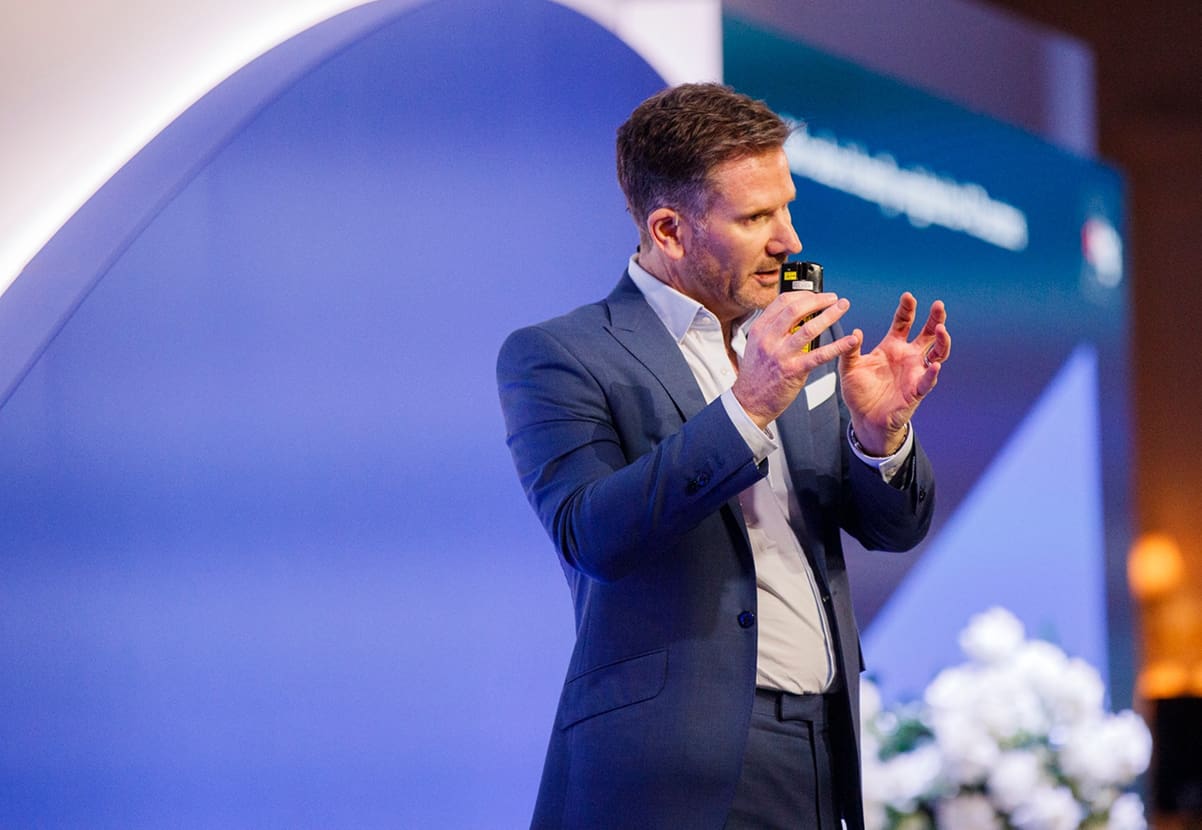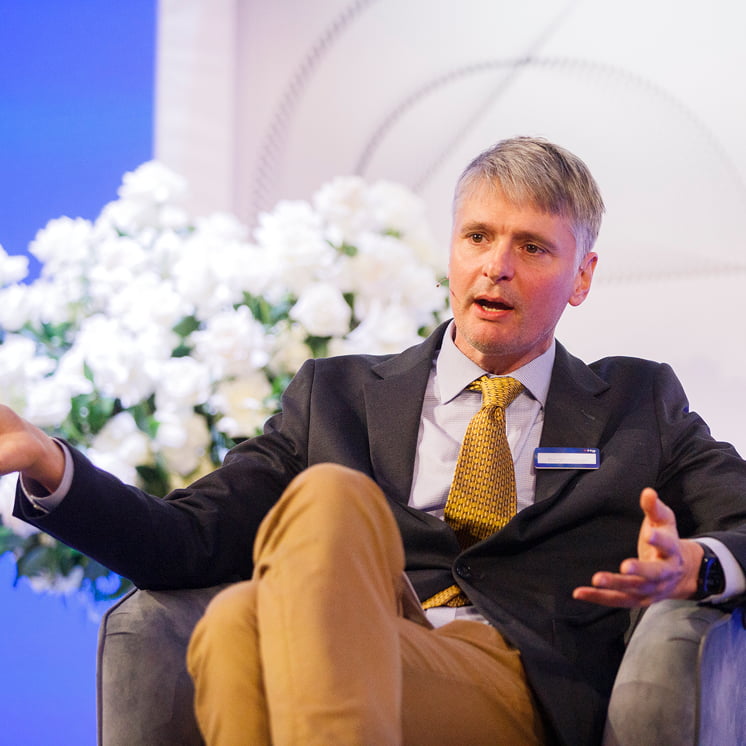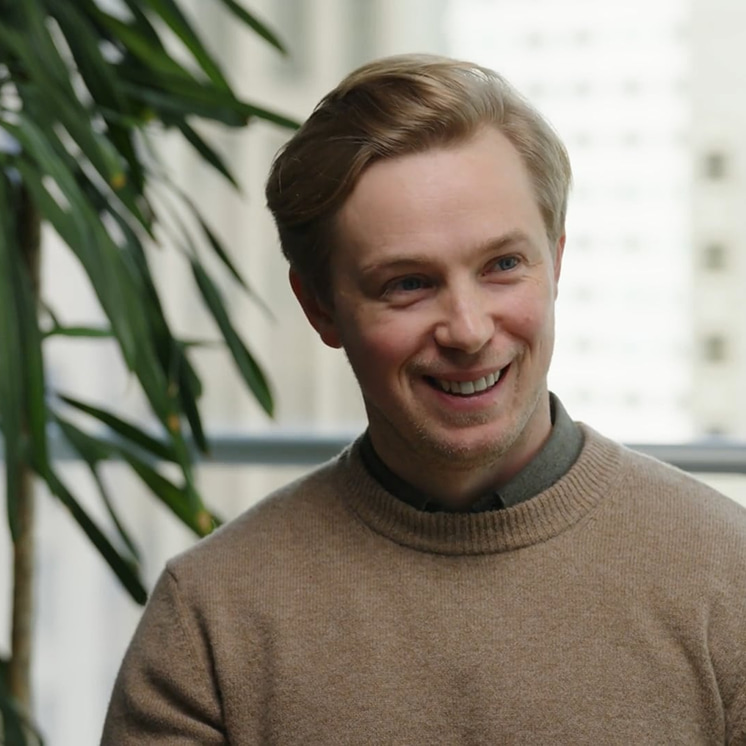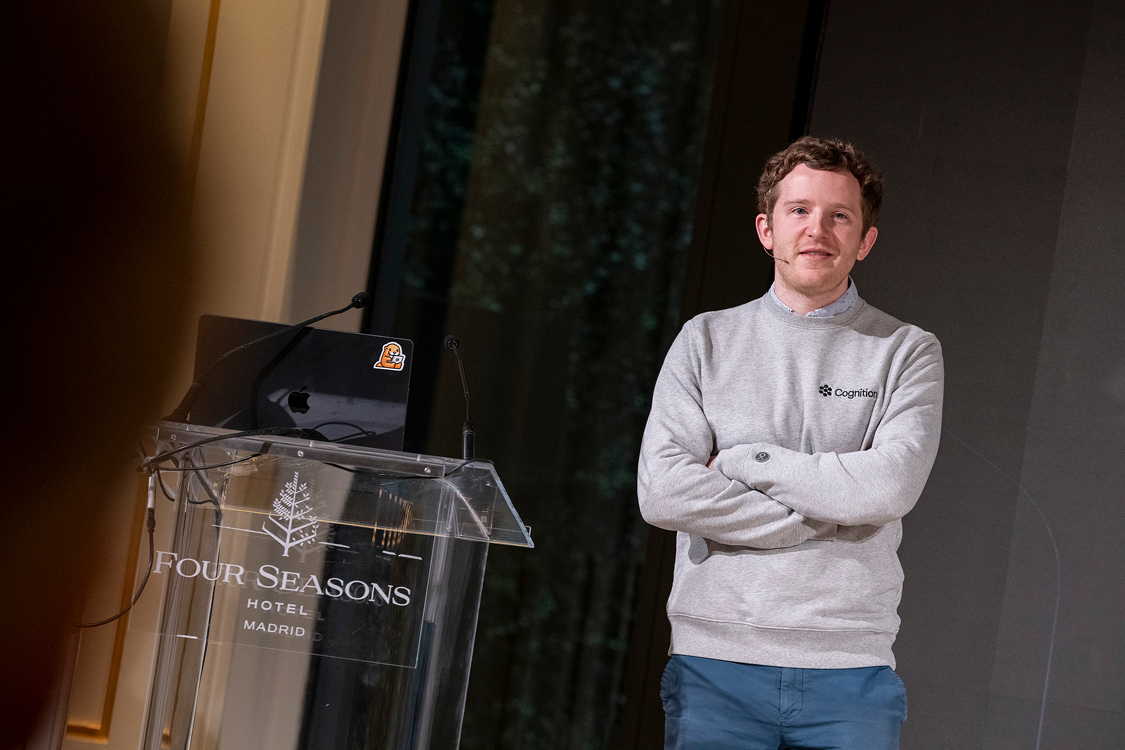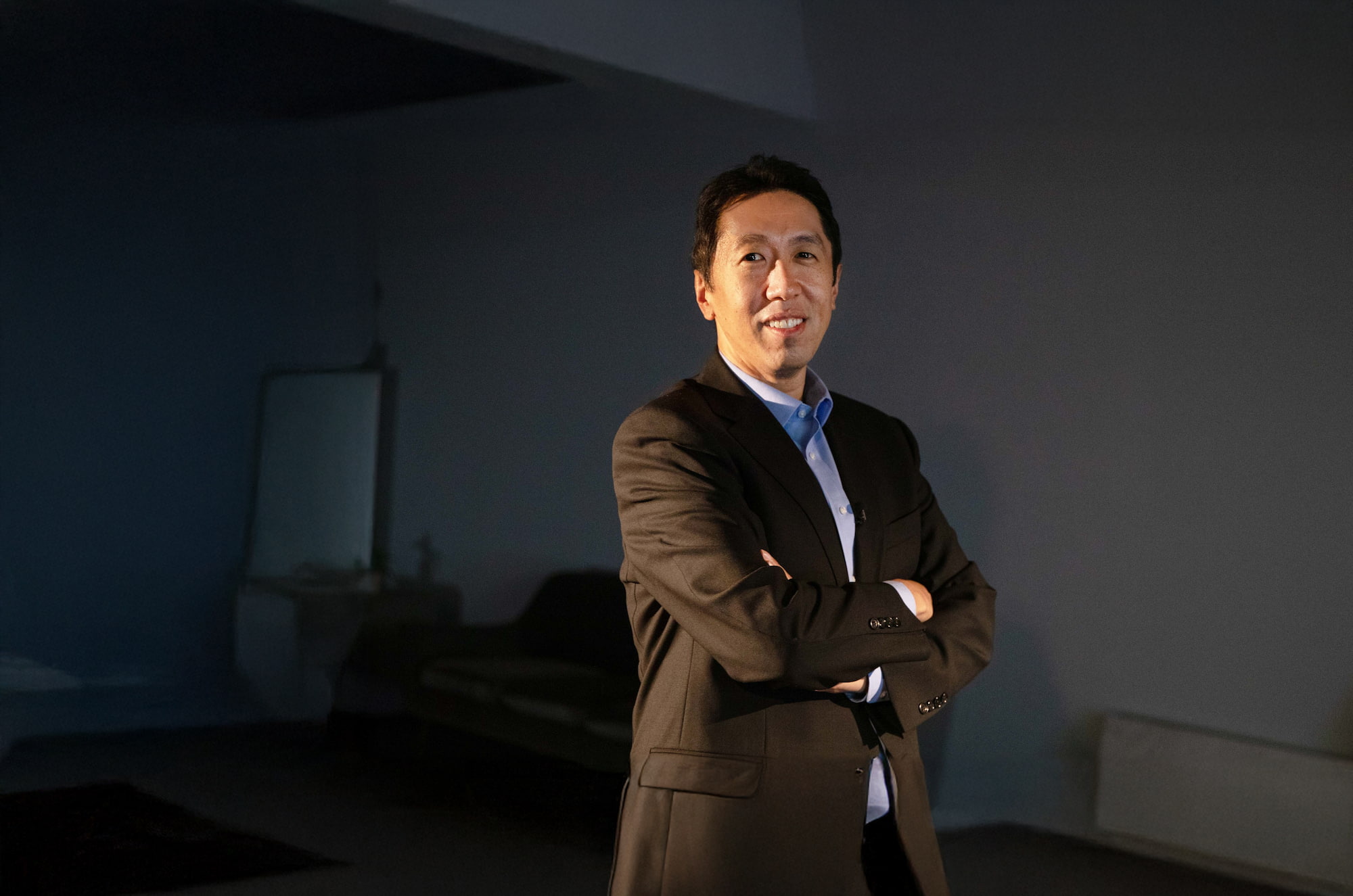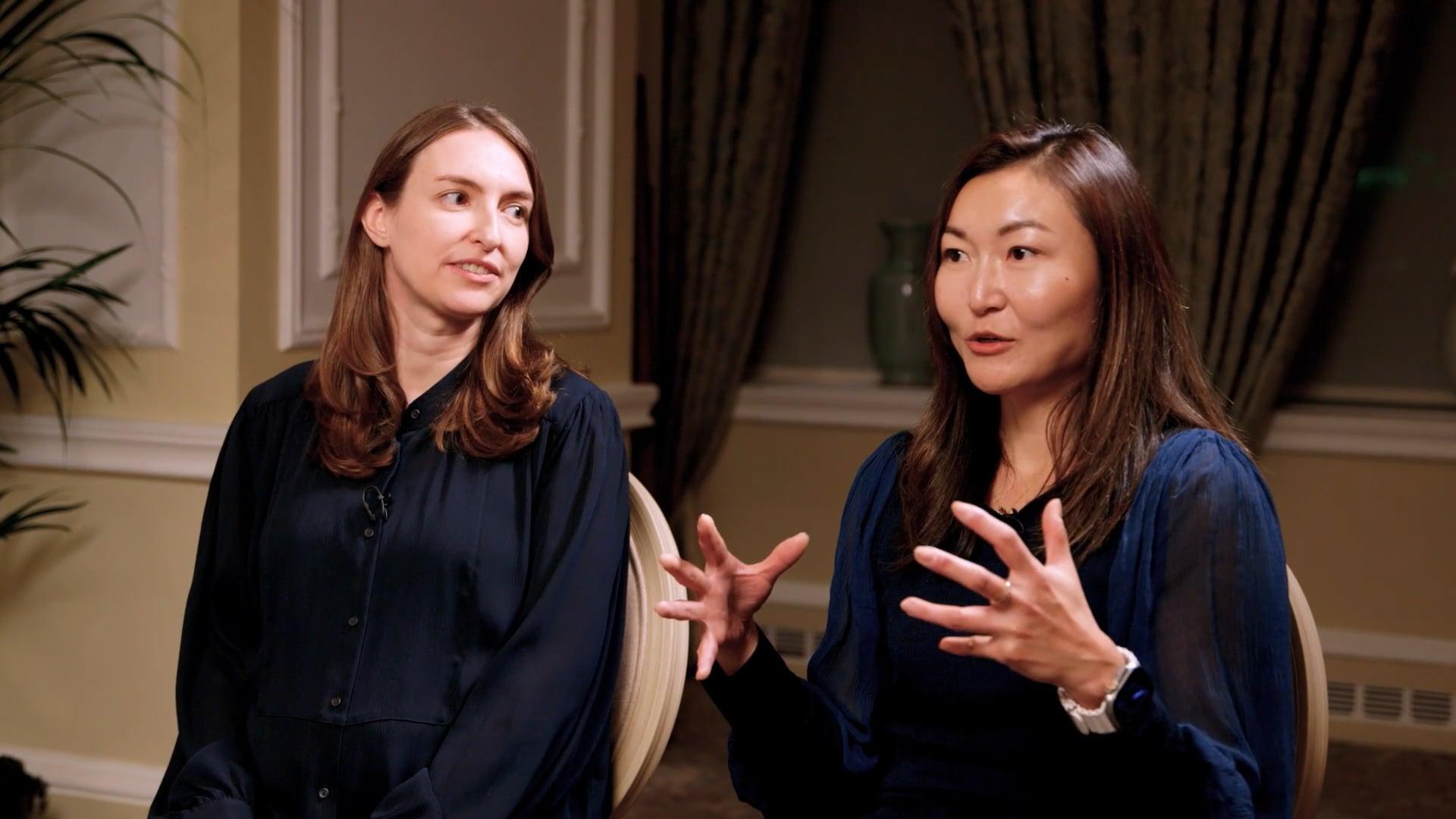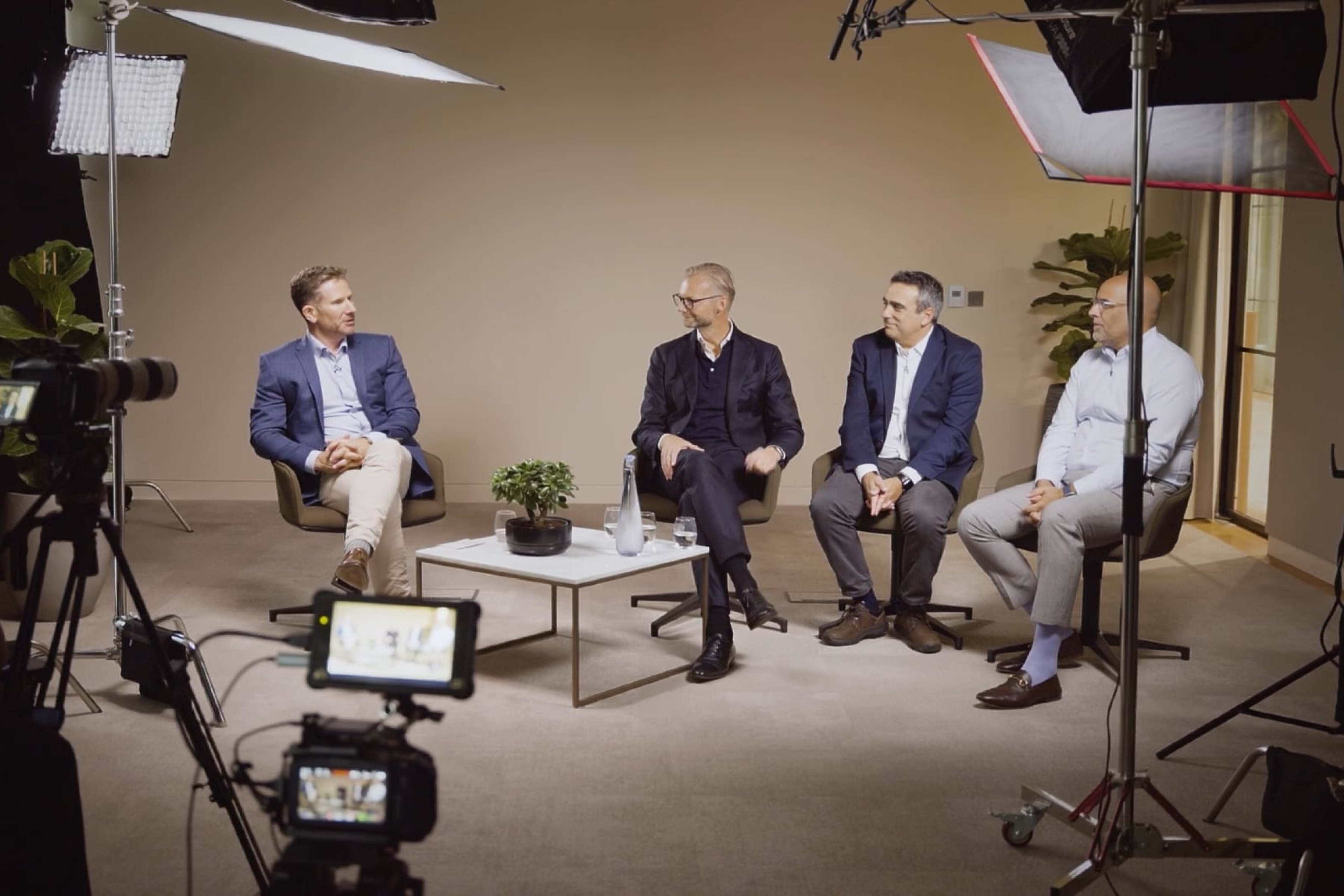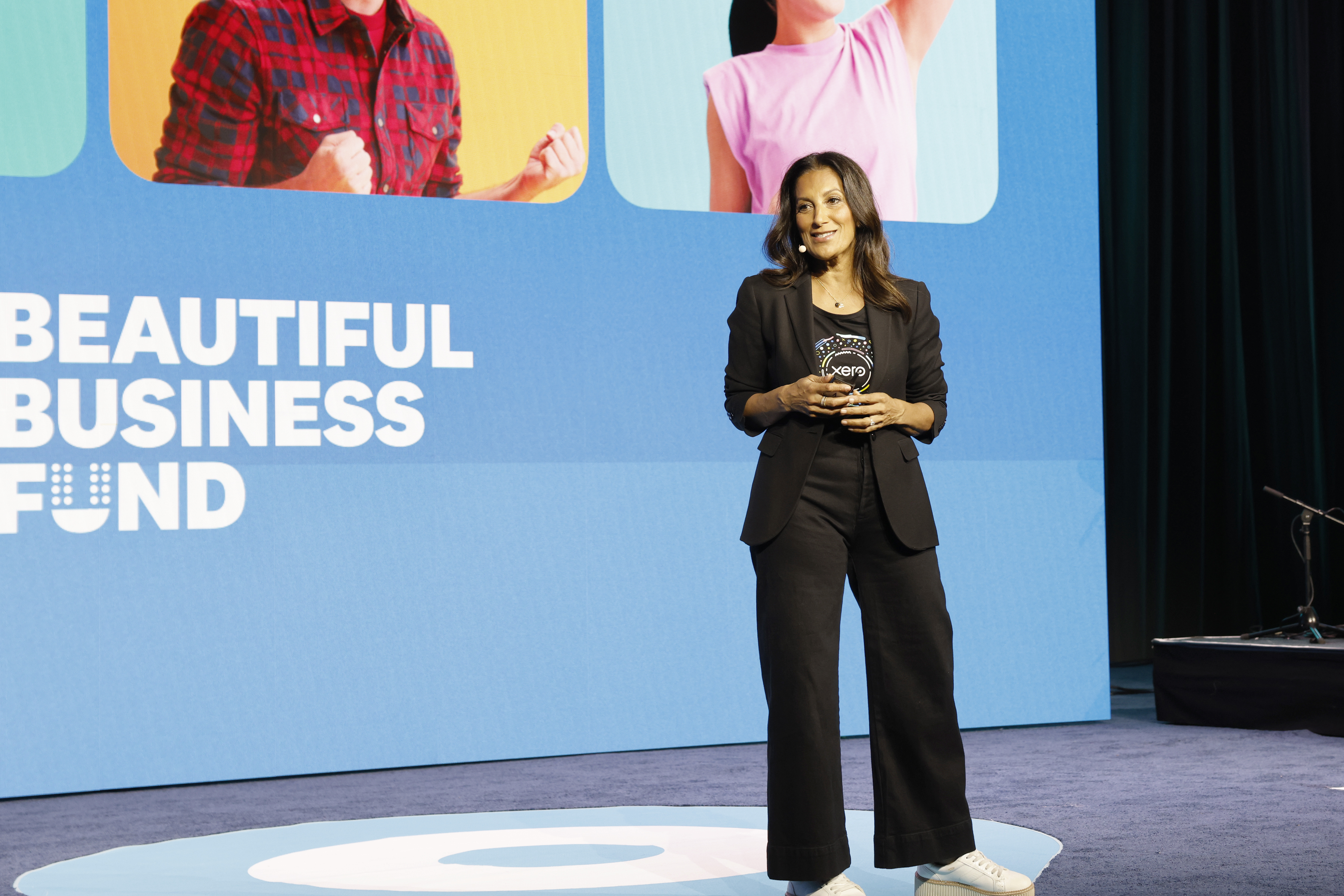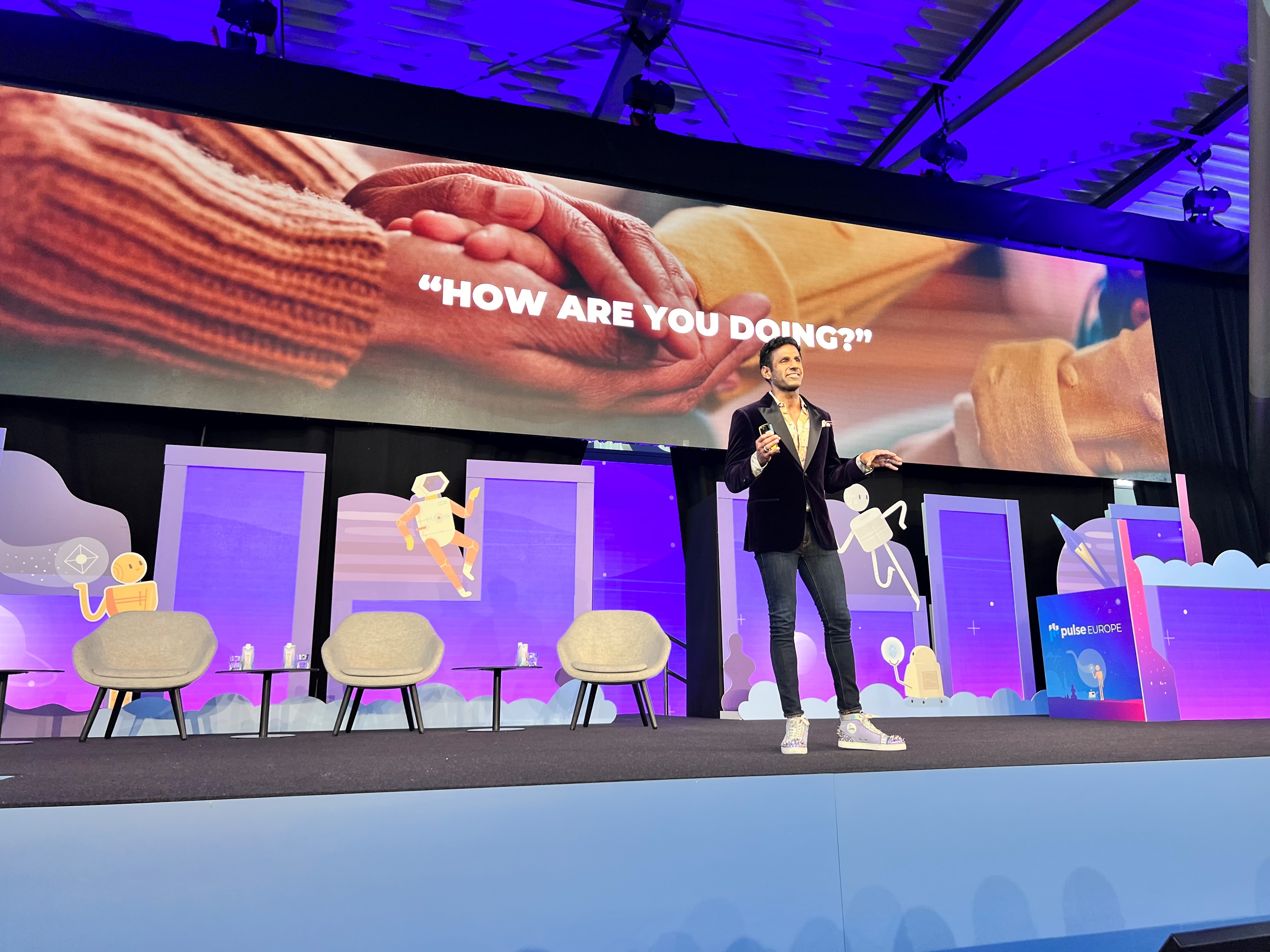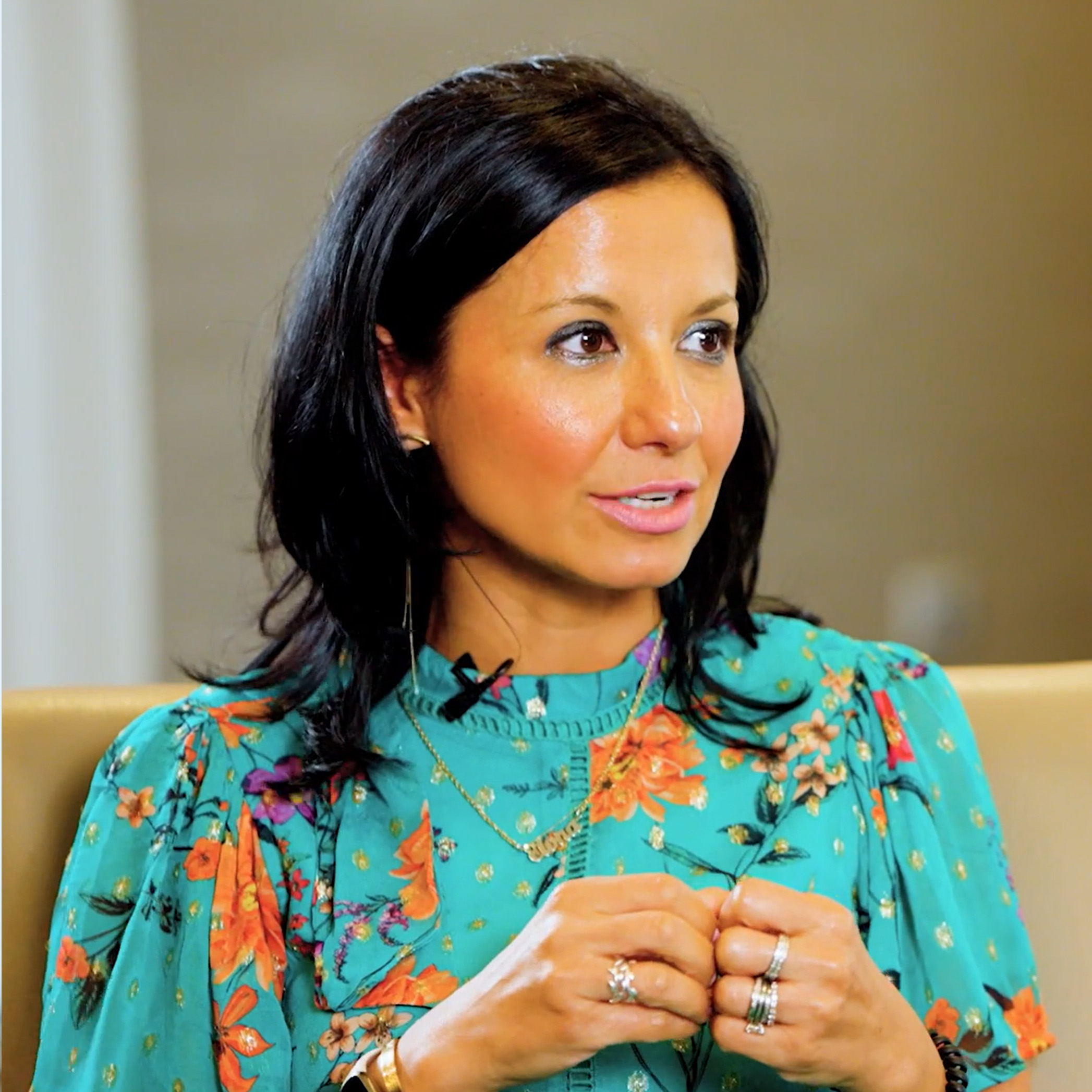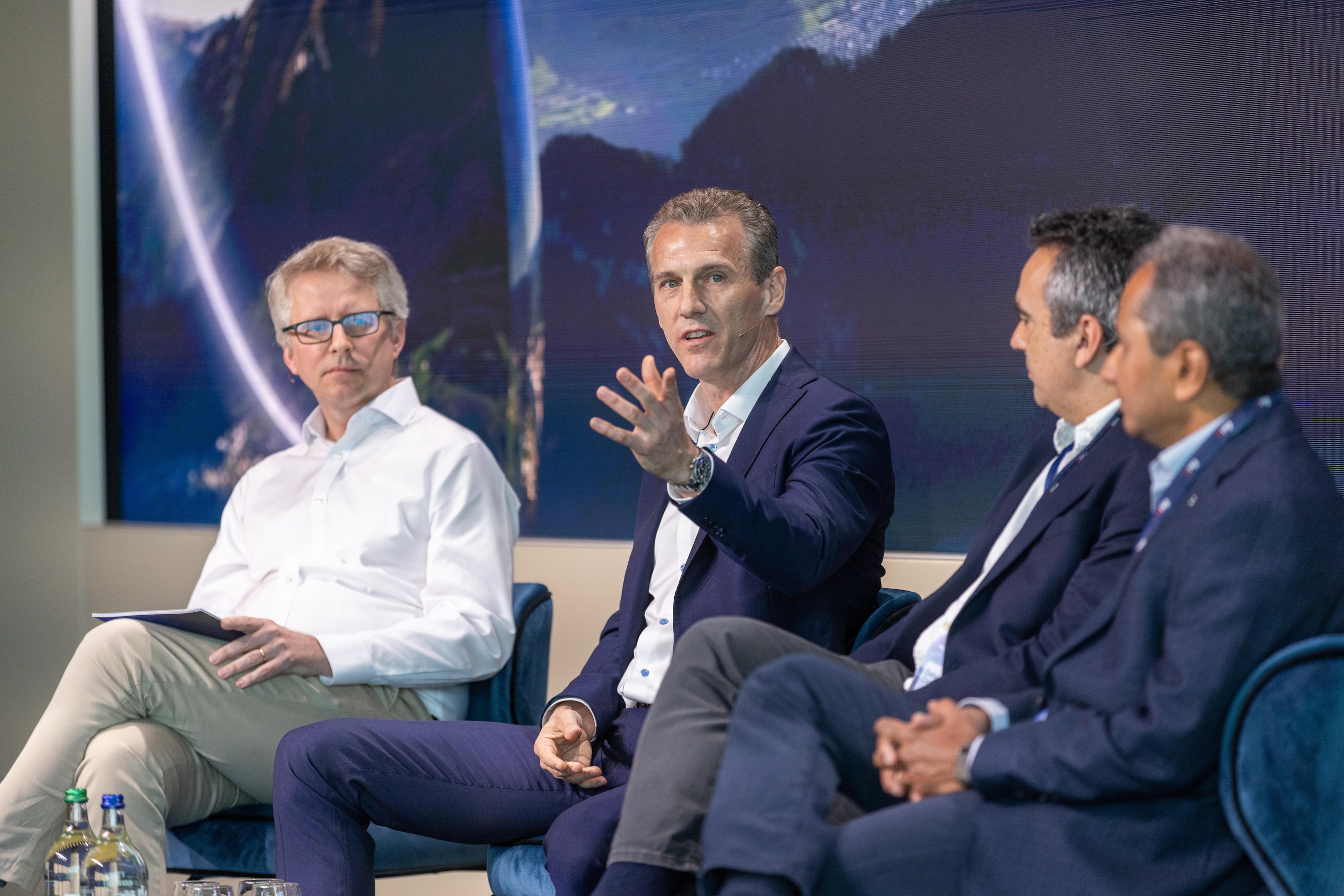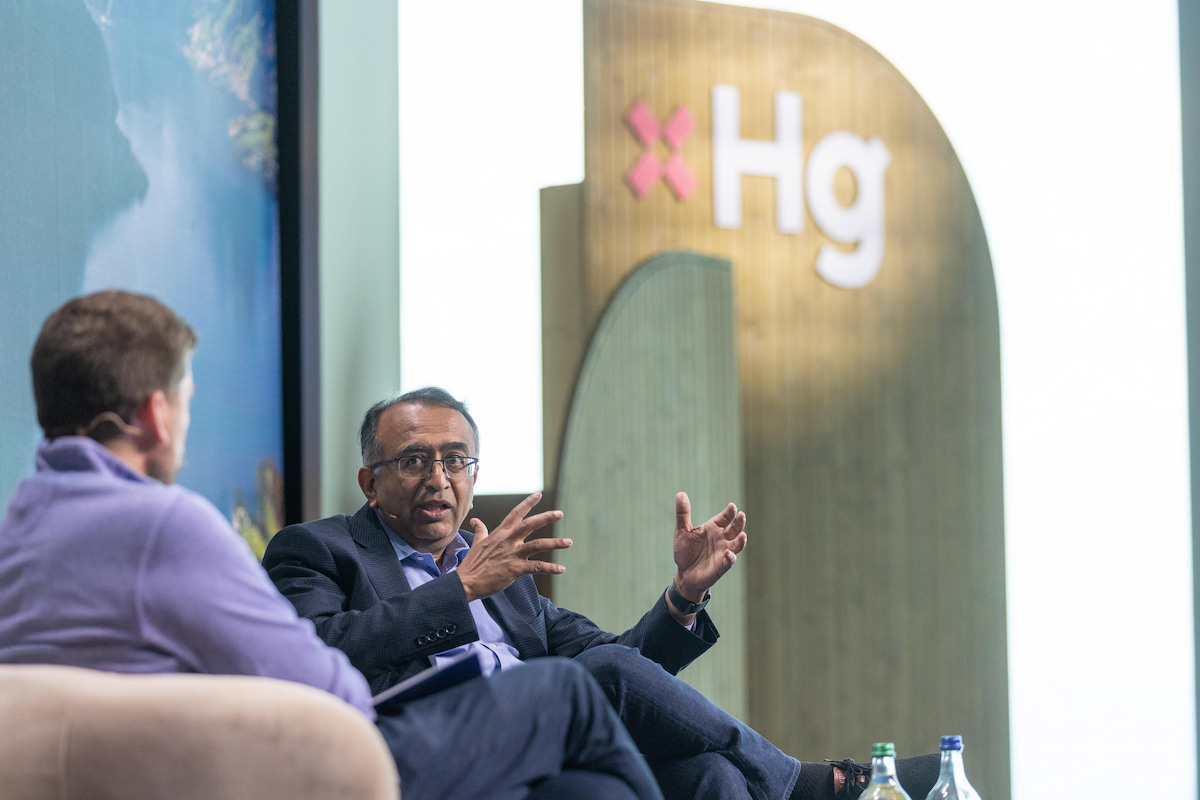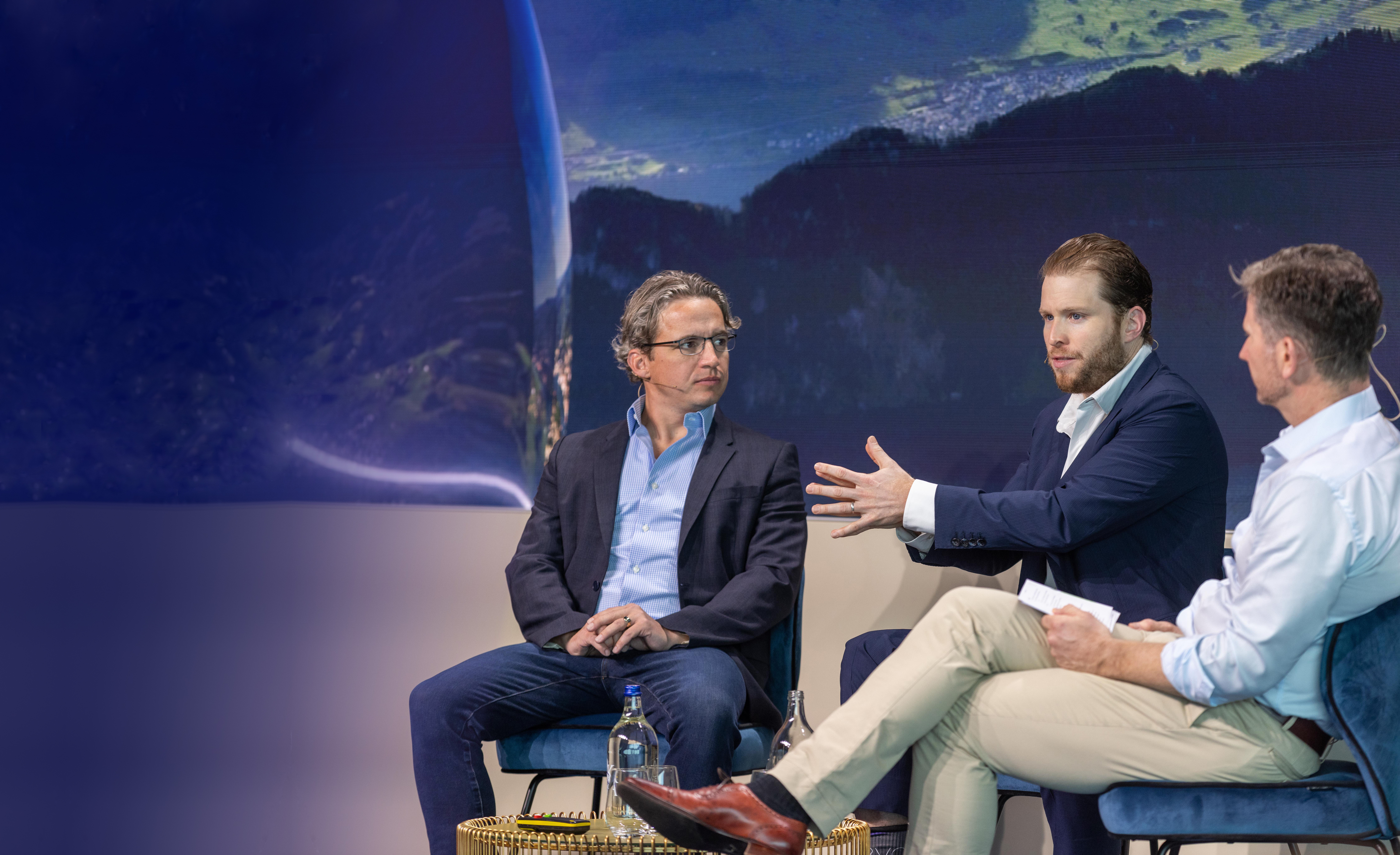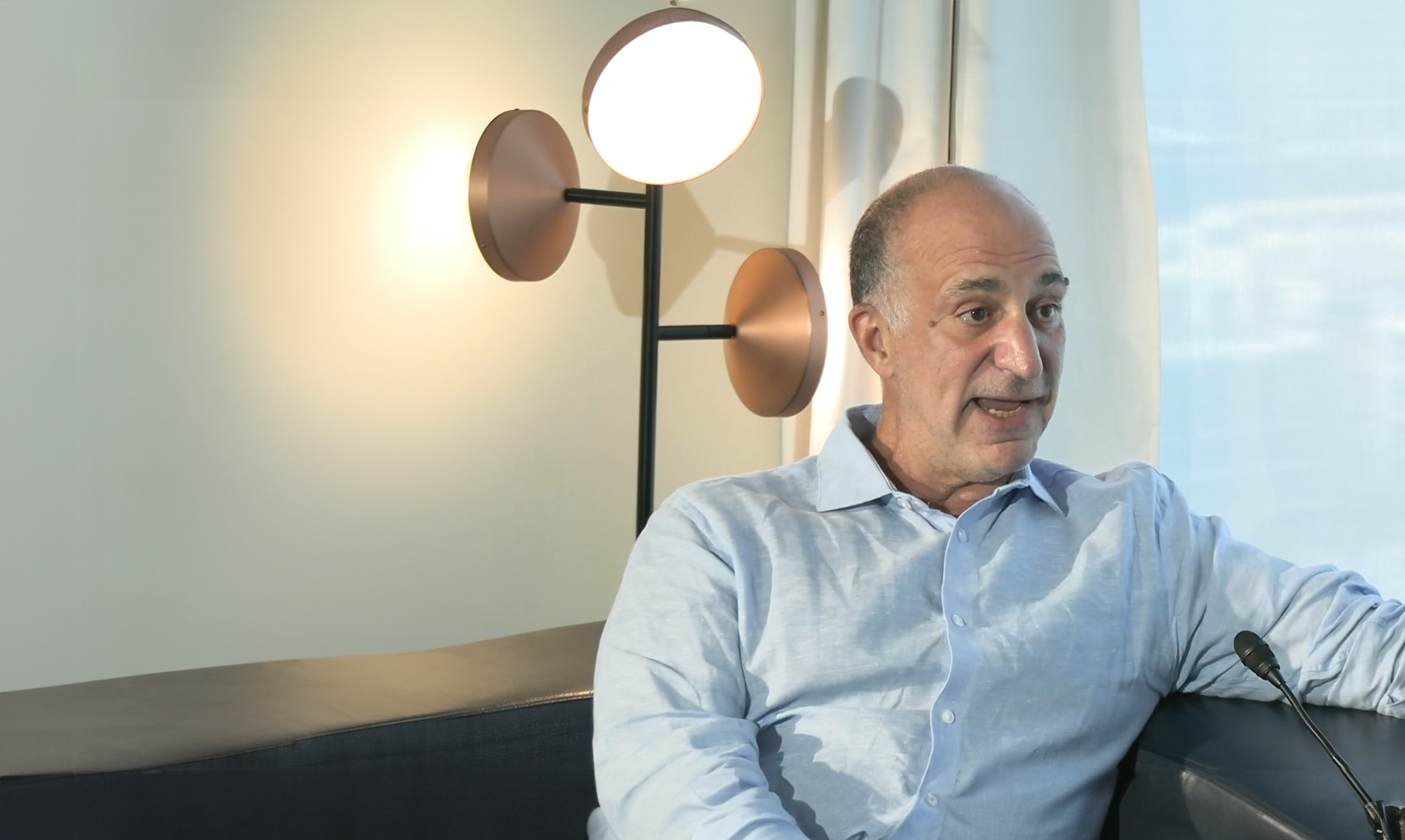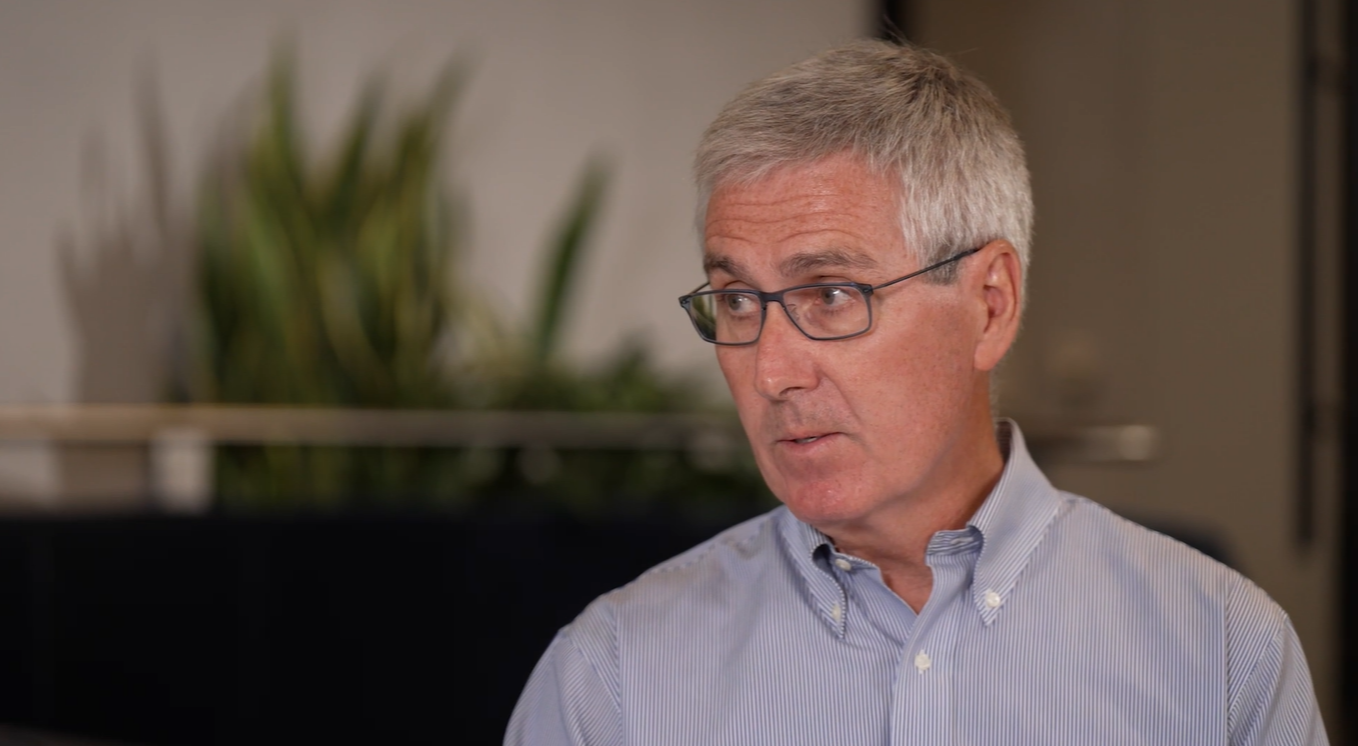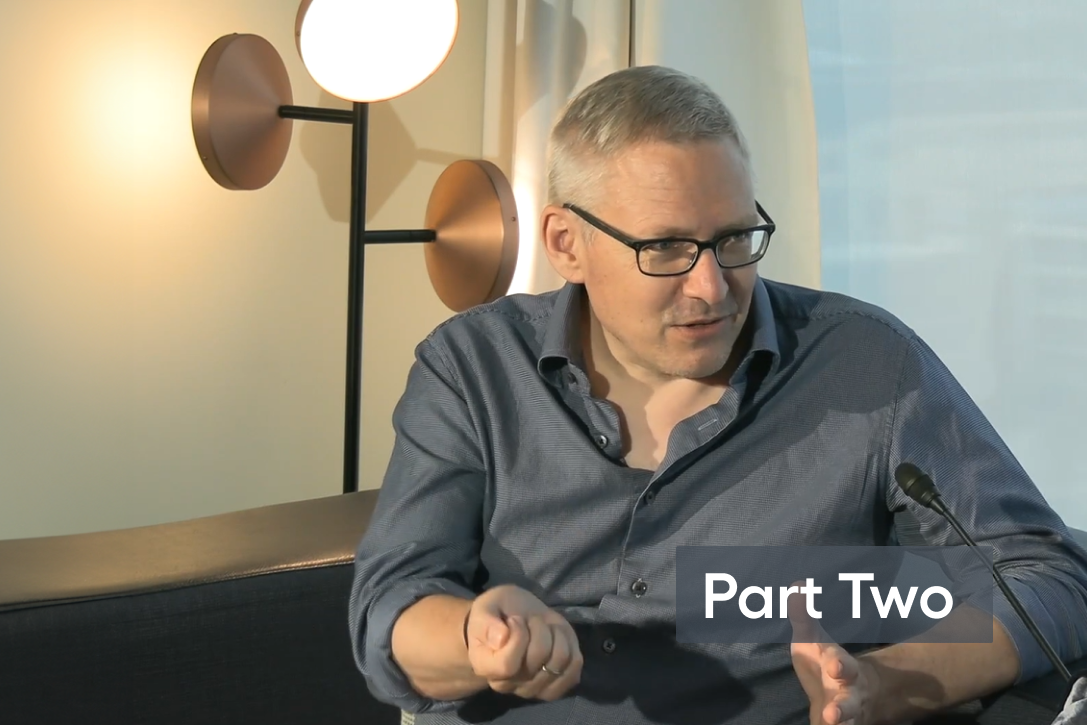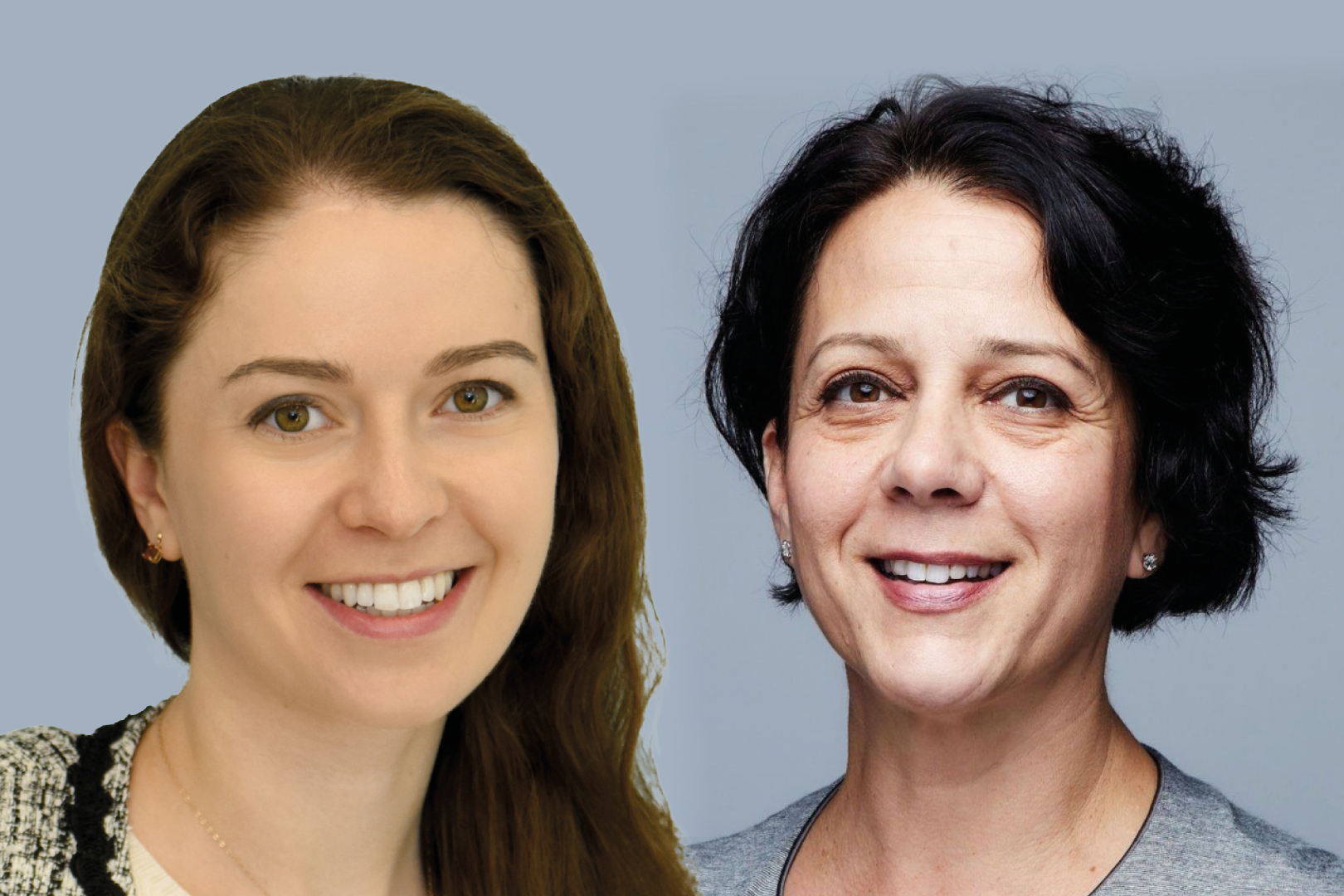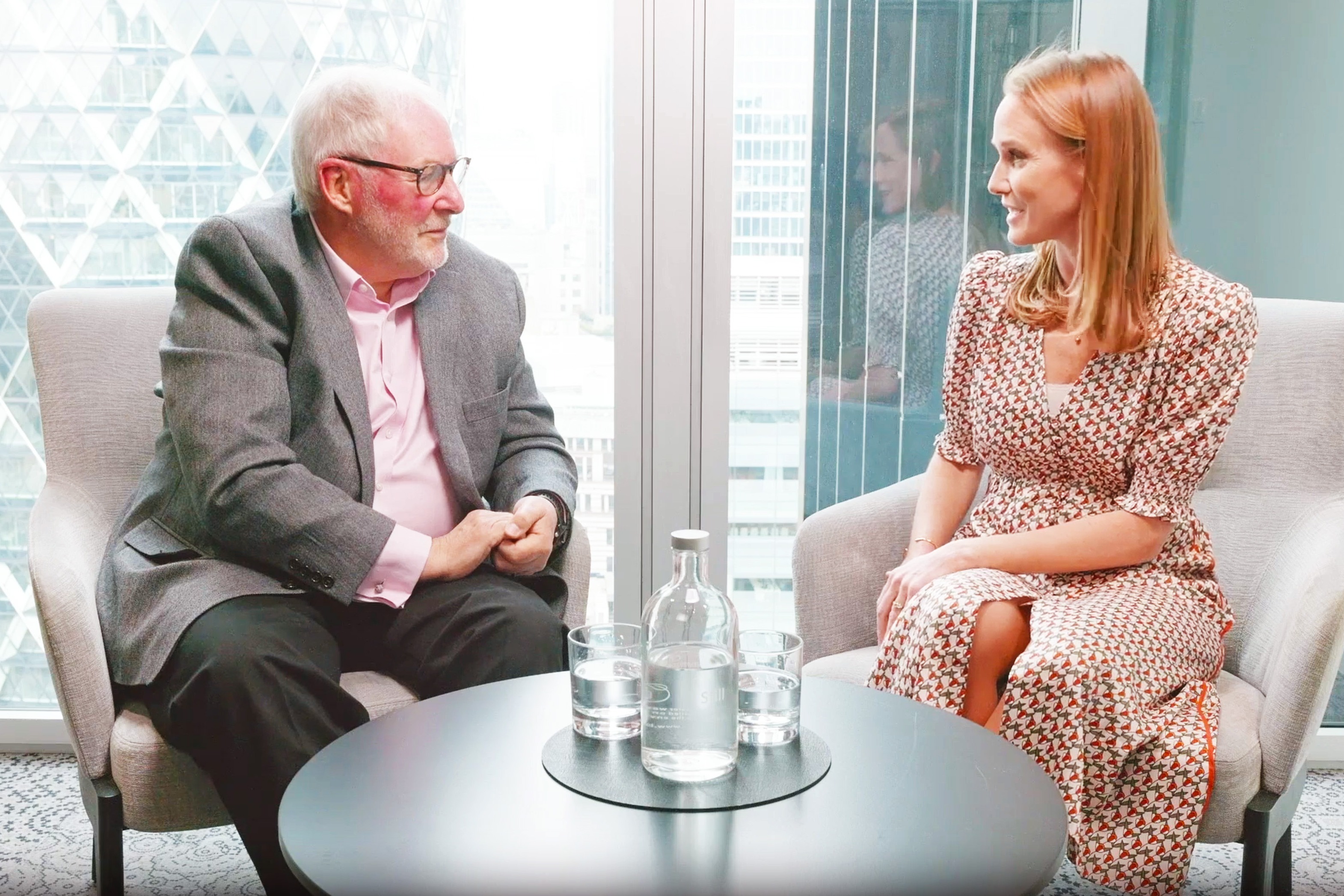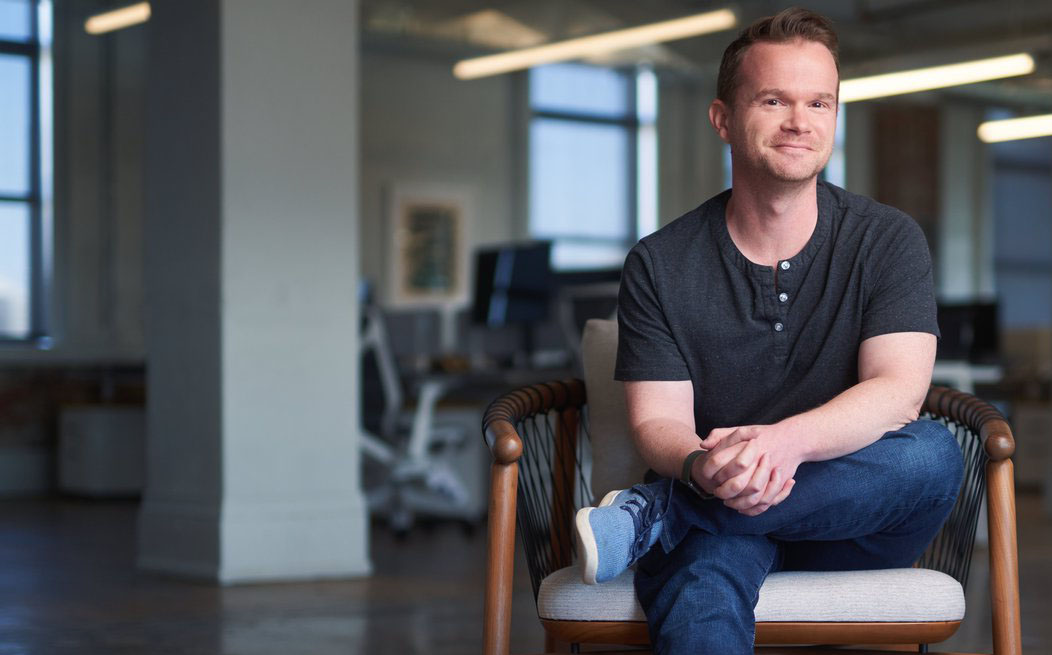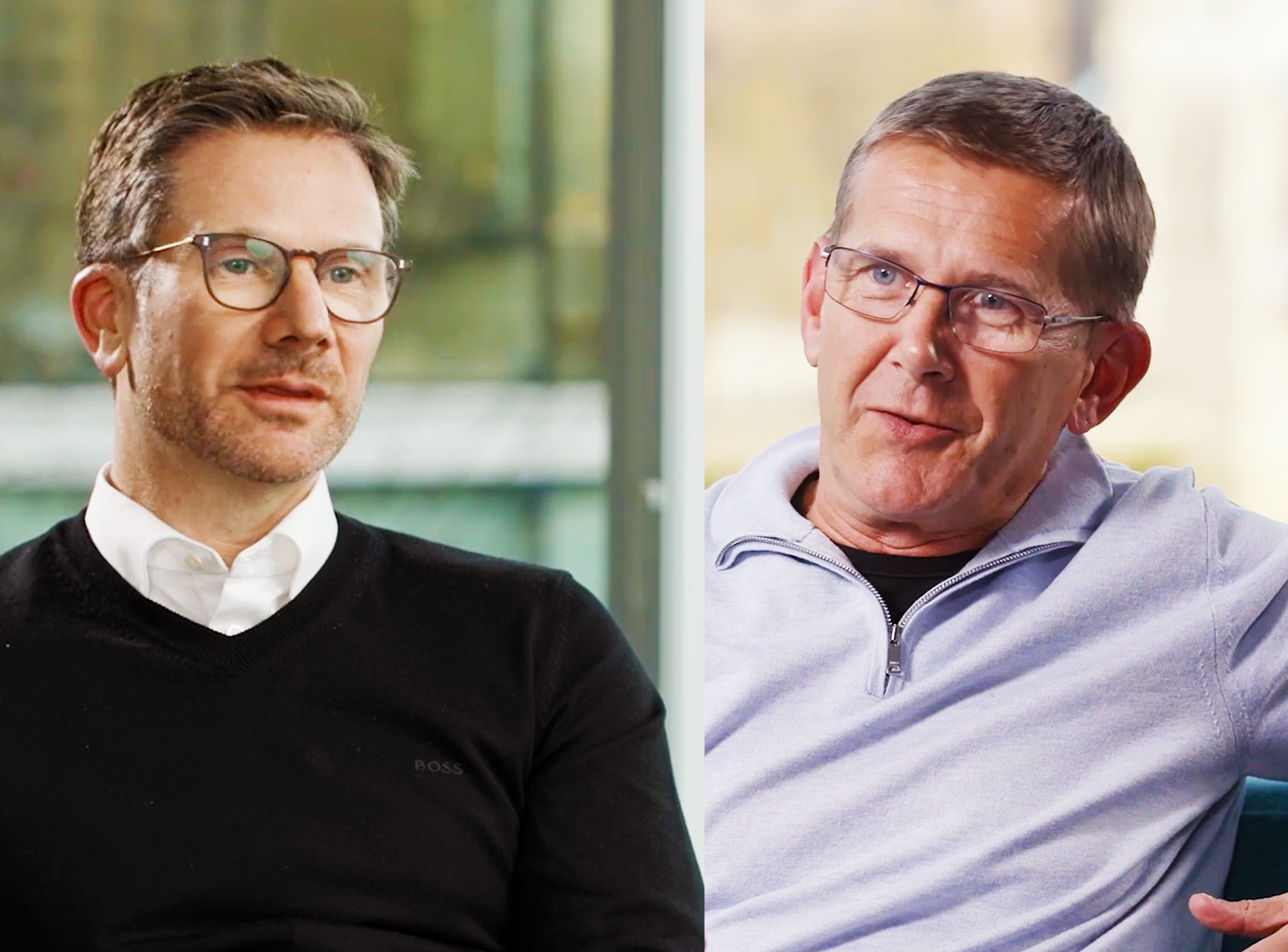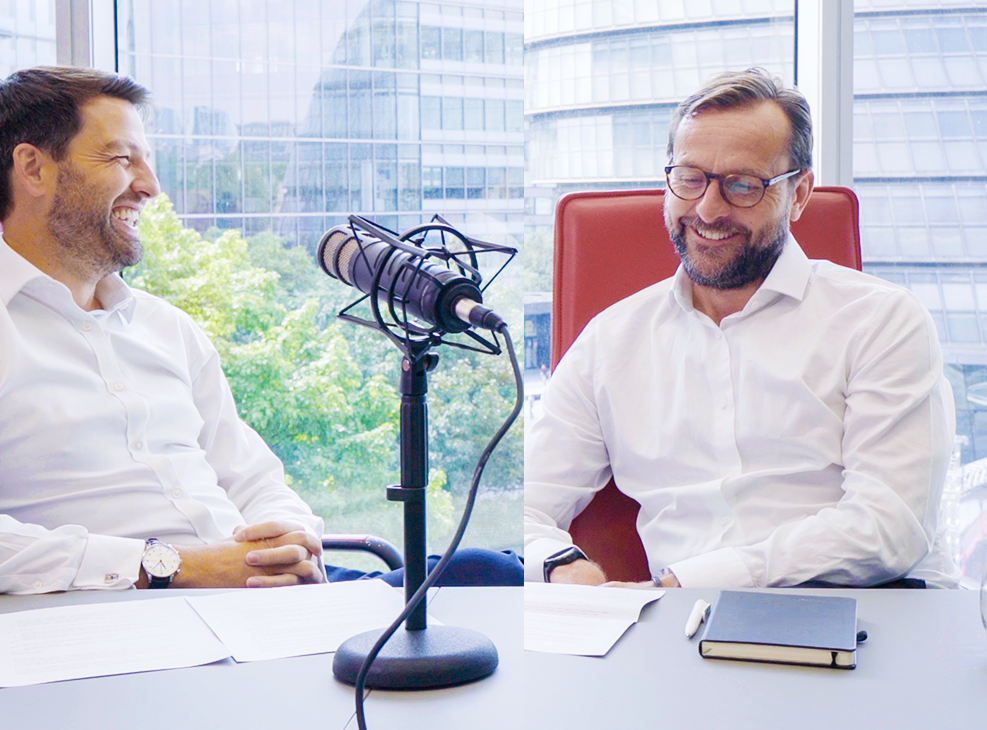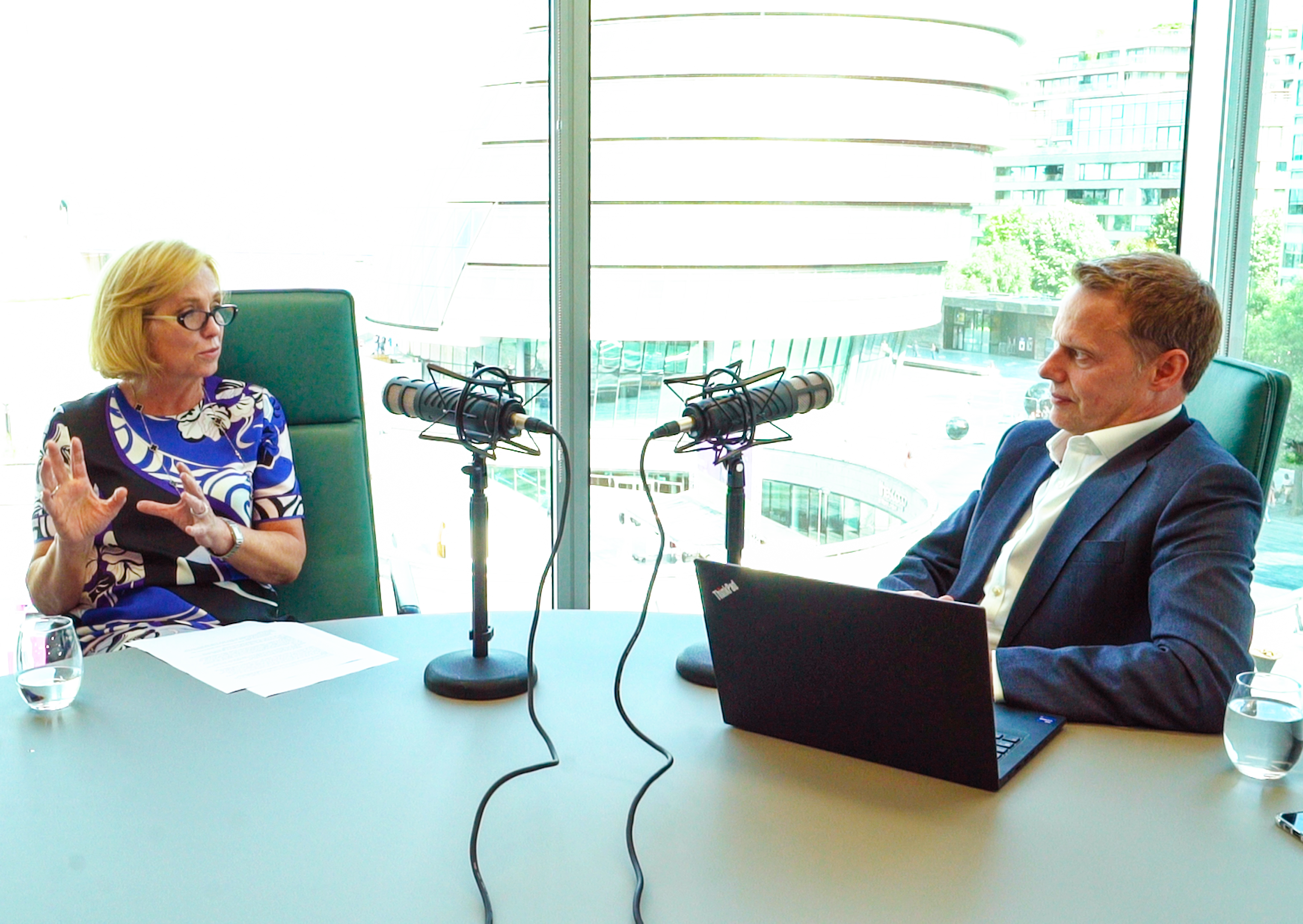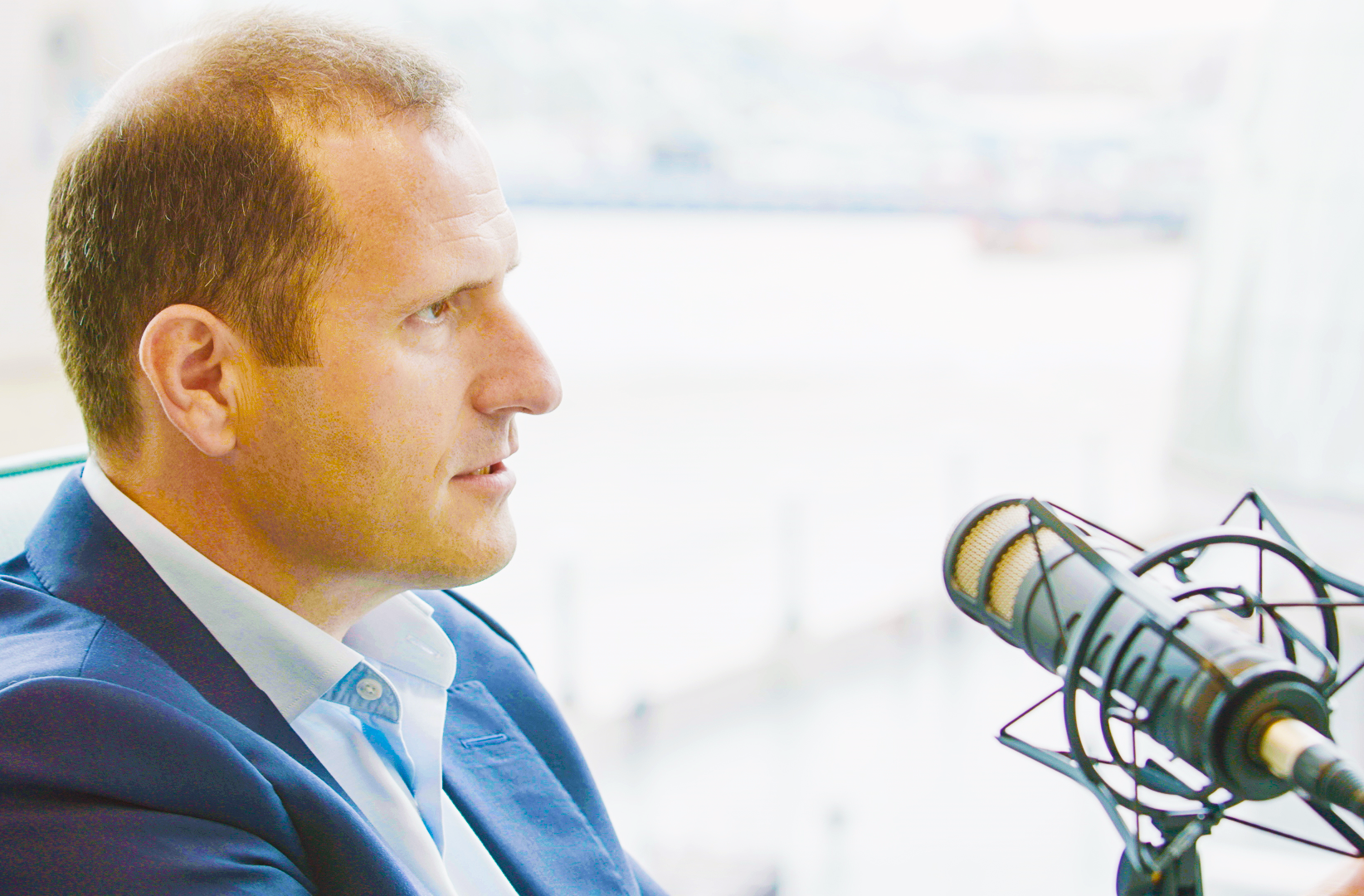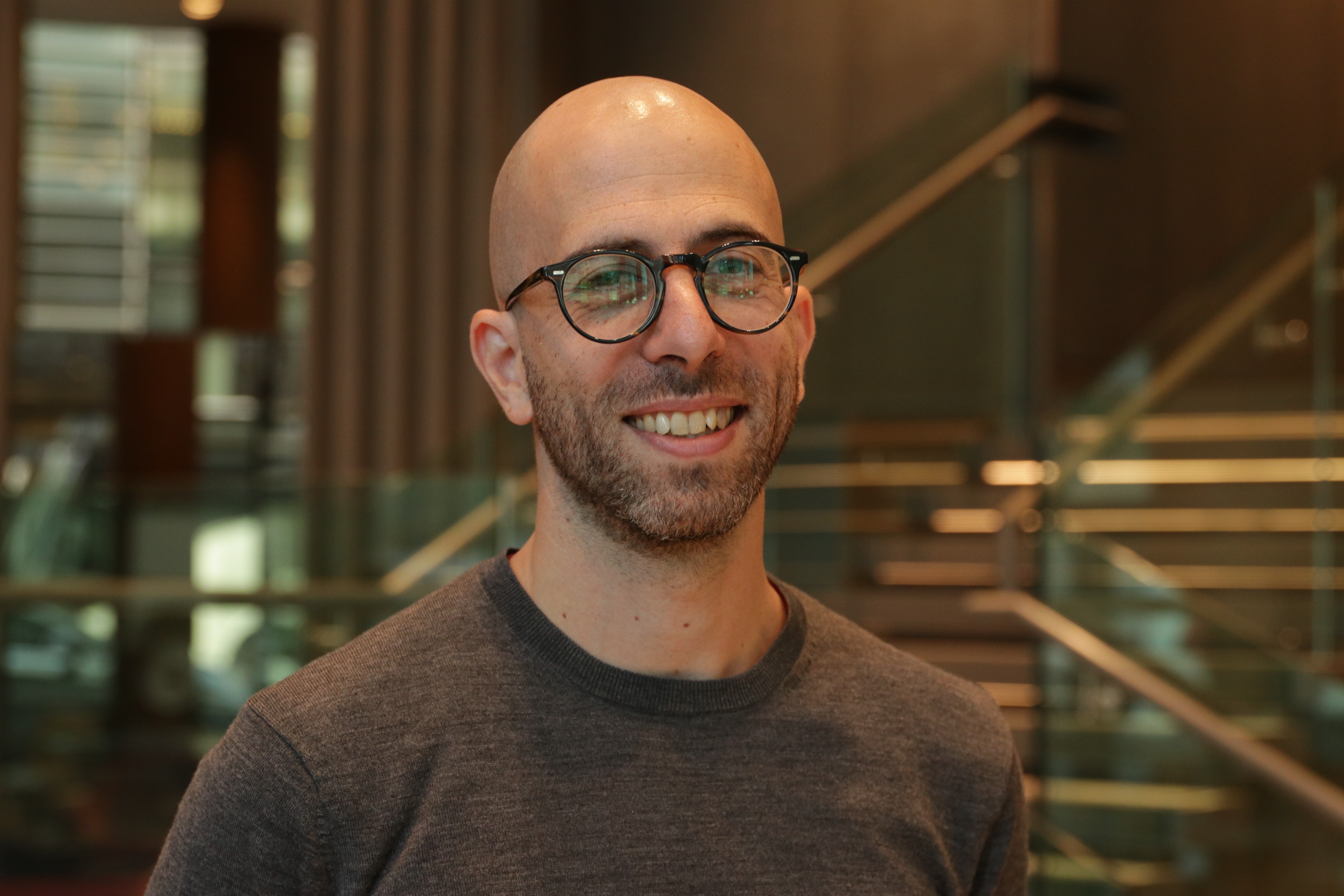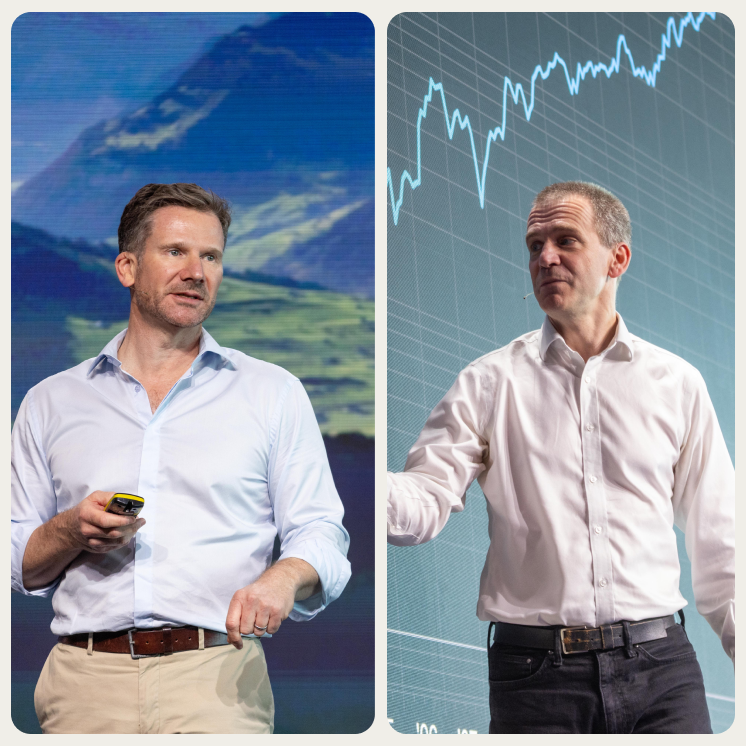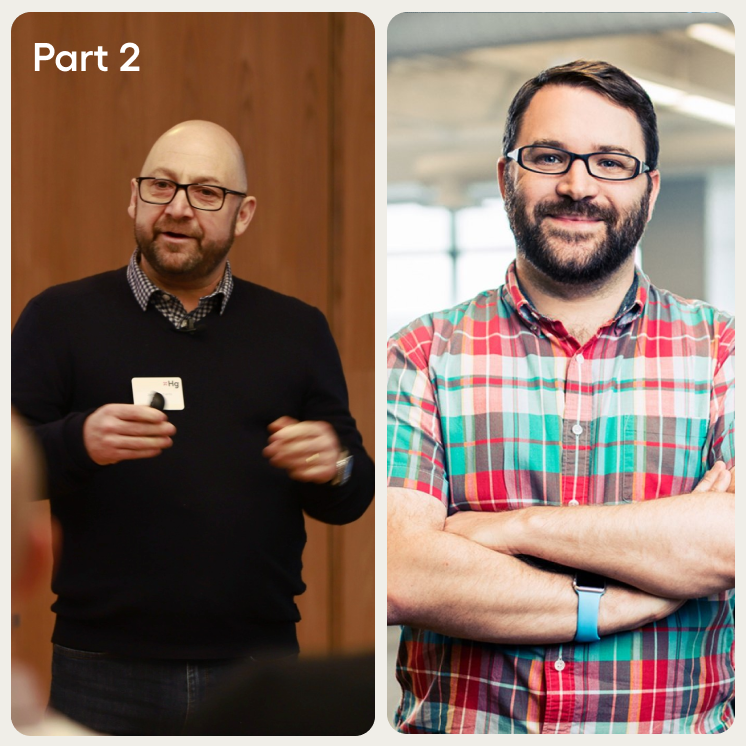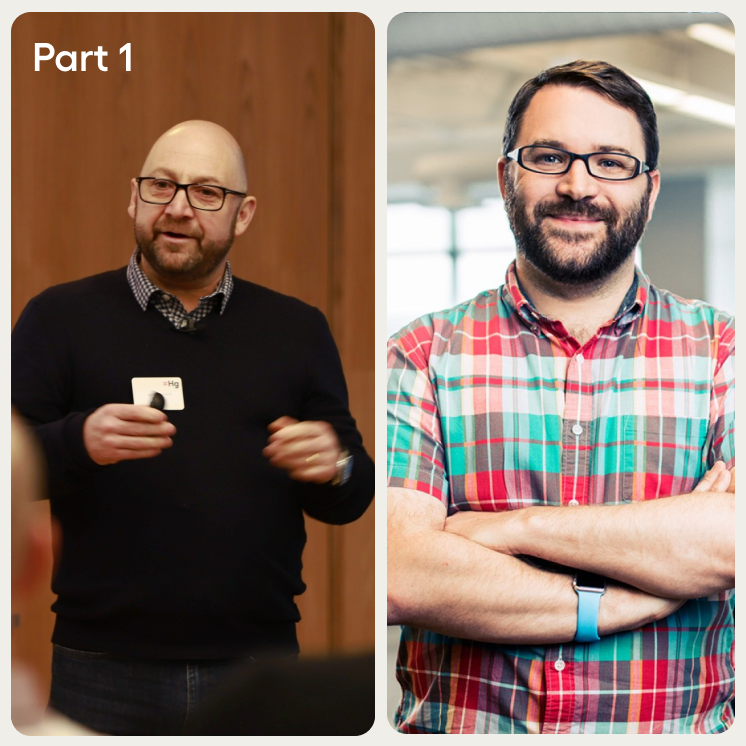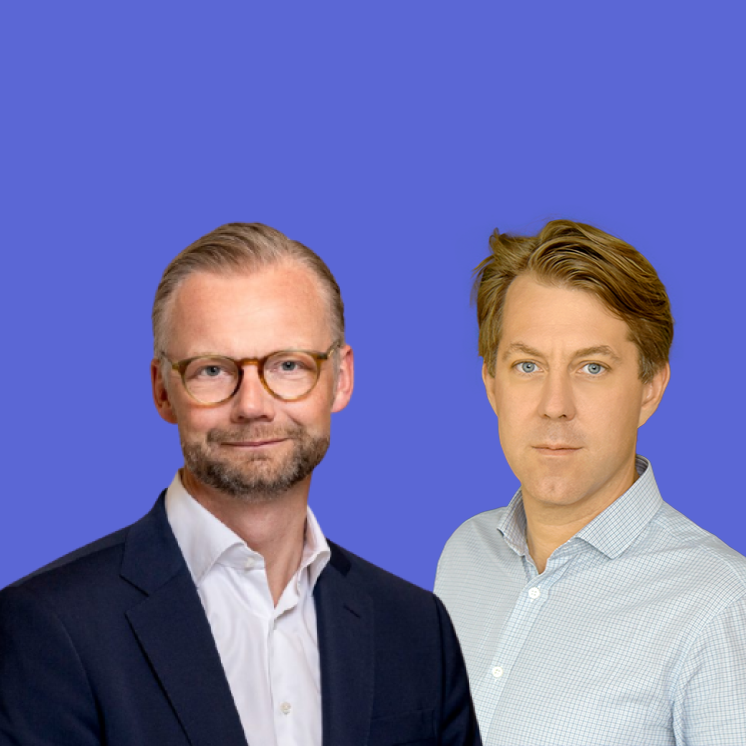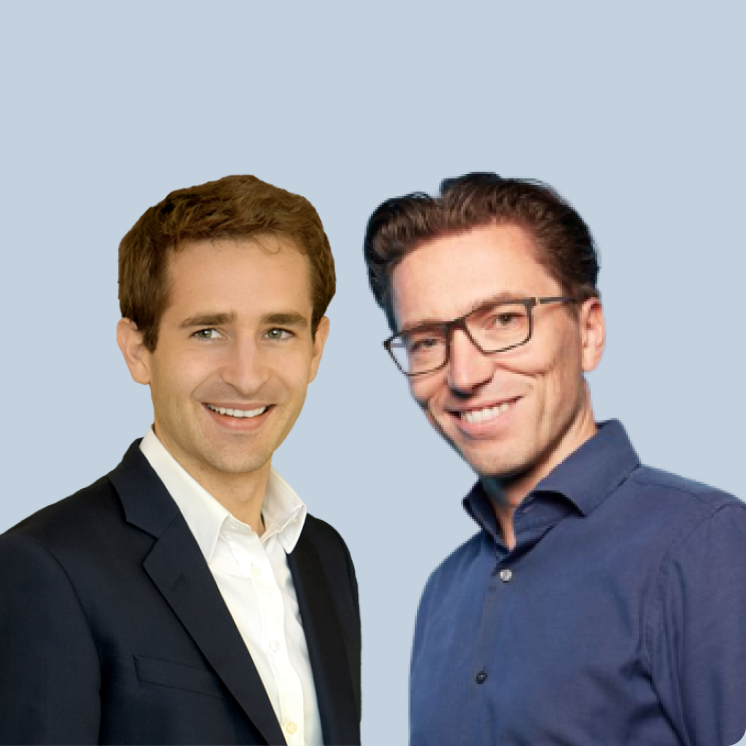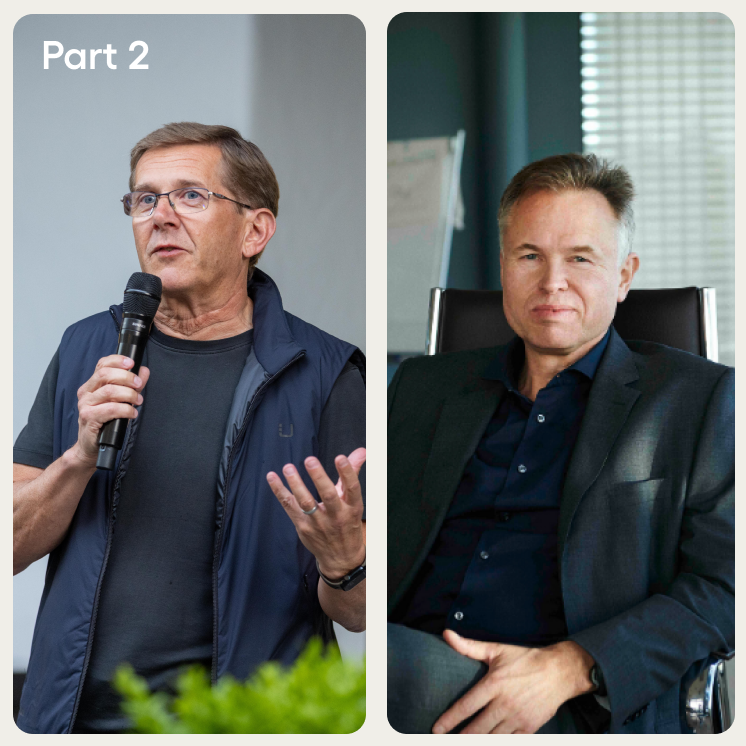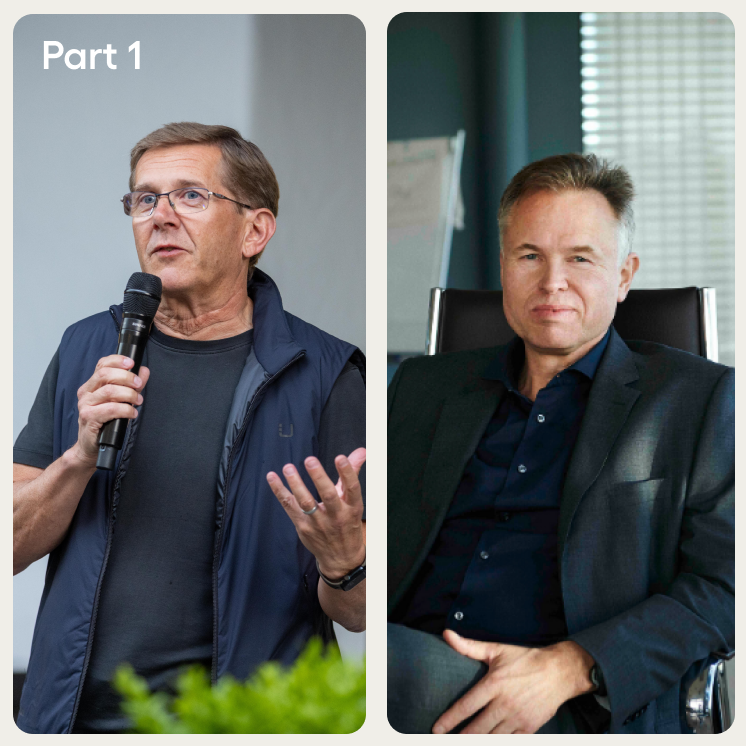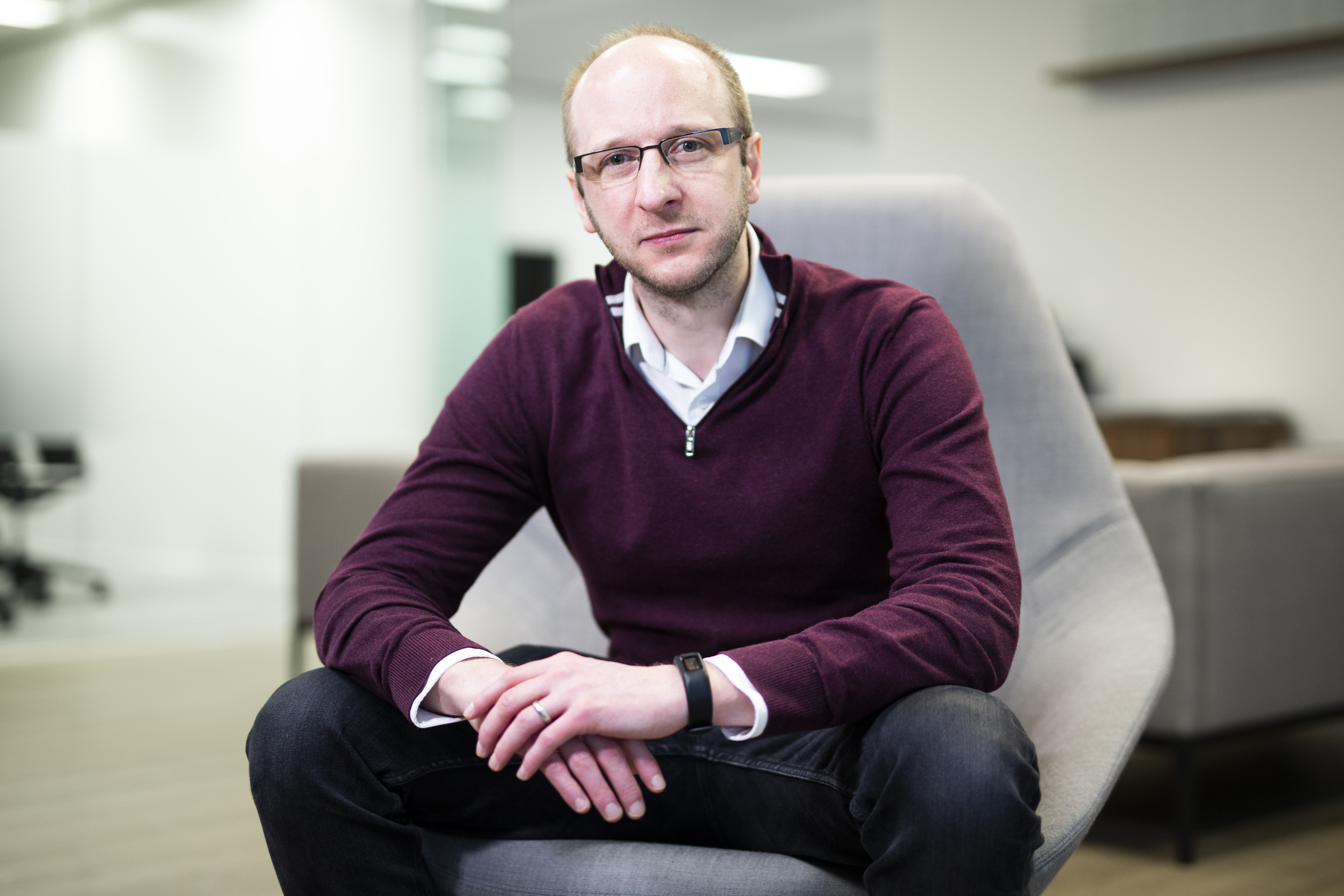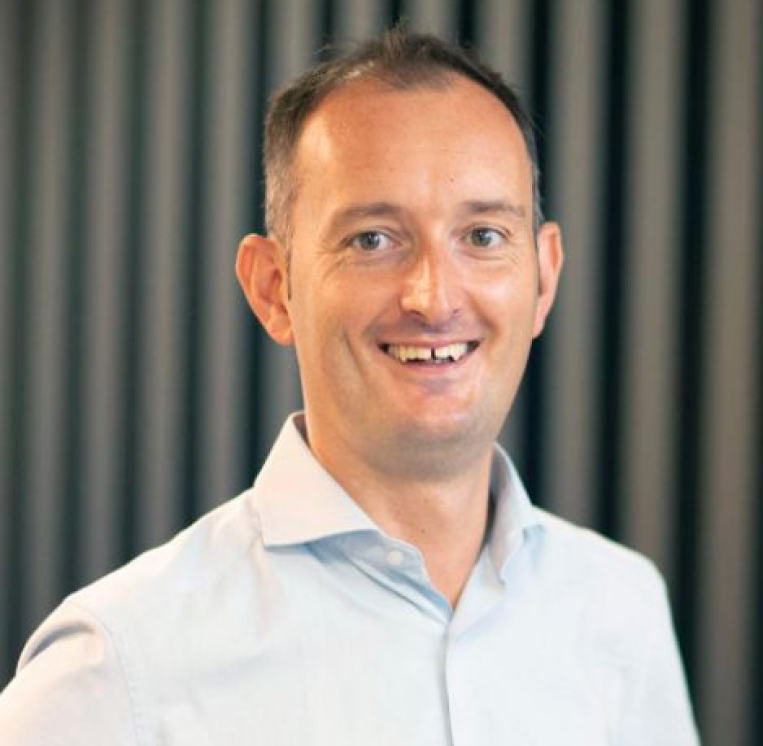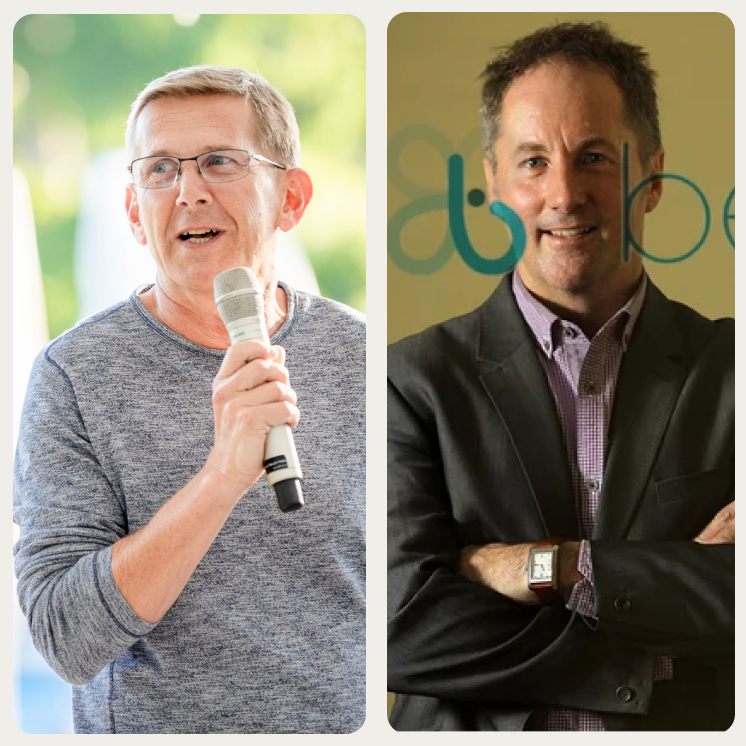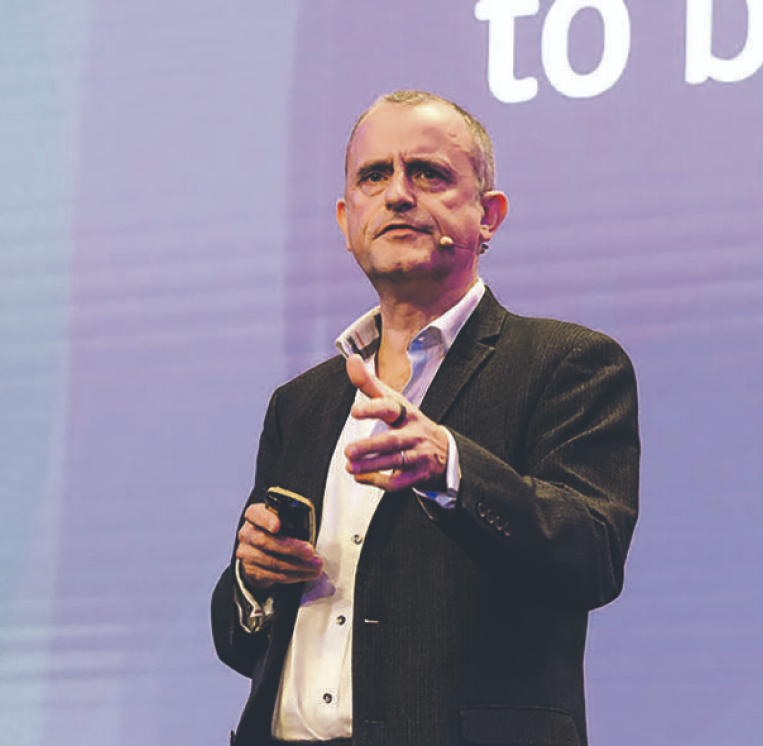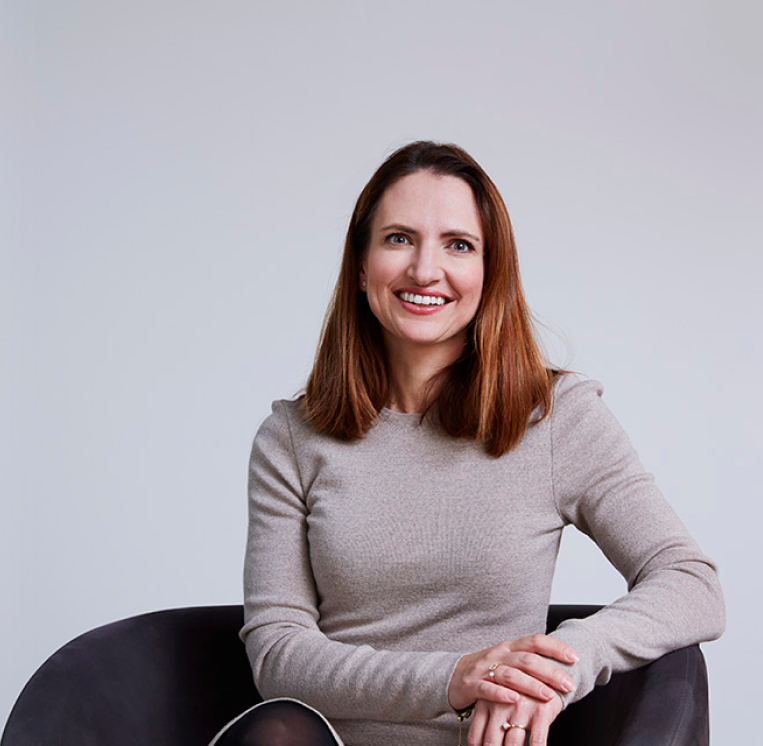Orbit Podcast
Orbit 40
The art of pattern recognition: Darren Roos of IFS
A veteran of the software industry for 25 years, Darren Roos is a disciple of the wisdom that failure breeds success. Battlescars that bring perspective and greater awareness of how to guard against the pitfalls of tough economic environments. He assures Hg's Nic Humphries that his abilities are not a result of intellect but rather hard-won experience; over two decades of seeing the same patterns reappear.
Now the Chairman of enterprise software giant, IFS, he looks back at his arrival as CEO - a South African in a Scandinavian company - and how his work to transform the business required some transformation of his own; before discussing tips around succession planning and his reluctant addition of 'author' to his CV.
Listen on:
Episode Transcript
Nic Humphries
Hi, I'm Nic Humphries. I'm the senior partner of Hg and I'm delighted to be joined today by Darren Roos, the chairman and previously the chief executive of IFS.
So Darren, South African, who's the chairman and chief executive previously of a Swedish company. We both know that different countries have different cultures. Any particular culture clashes or other similar things you had to deal with as part of that introduction of the company?
Darren Roos
I think one of the things about being a first-time CEO is that you do get to, I guess, hit the reset button and reinvent yourself a little bit. And it's something that I definitely took the opportunity to do coming into IFS, coming out of my previous role where I ran the global ERP business at SAP, I think I was probably a little bit more South African, a bit more direct.
Nic Humphries
What do you mean?
Darren Roos
Yeah. I'm mellowed now. But coming into IFS, you're right, Swedish, very consensus-driven culture. That was how the business had been run in the past. But it required a significant amount of change. And I think what I was able to do was moderate, I guess the way I naturally would've been being South African and very direct, but coming into an environment where I recognized very quickly that I was going to have to win the hearts and minds of people to take them on the transformation journey that we were going on.
So adapted my style so that there was a lot of communication, constant communication. I learnt early on and I think about those early days at IFS where there was a lot of frustration for me and how many times I had to repeat the same message. And now I take it for granted and go on transformation journeys with other businesses and recognize that in those early days they do need to hear it a lot. But I think that the fact that being South African I was very direct and I wasn't trying to flower any of the messages that I was giving it to people with a level of authenticity and directness that meant it was unambiguous, they just had to hear it over and over again. But that definitely helped and very quickly the business rallied around that clarity and directness/ so it ended up working well.
Nic Humphries
Is there any particular tips or tricks? Is there town halls that you use? Is there ways in which you try and communicate messages? Is there any very practical things that you say, "look, I've found that this particular technique or this way of communication has been more effective for me in that environment?"
Darren Roos
So I think the town halls definitely work. And I think a few things about the town halls at IFS we use Facebook Workplace, which they're going to end of life soon, so I can't recommend anybody uses that. But we used Facebook Workplace and then we would live stream on Facebook Workplace and I would take the questions live directly, unfiltered and everybody could see the questions coming through. And I made it a point of principle never to dodge the difficult questions. And maybe a tip that I would give people is that I have seen people try and emulate that, but on a platform which allows the users to anonymize who they are, don't do that because as soon as people don't have to put their name next to the question, the really crazy stuff comes out. So don't do that. Make people put their name to it and then answer every question.
So we ran those on a monthly basis. That worked extremely well. We still do Mark Moffat, who's the new CEO at IFS, still does them. Those were really, really successful. And I used to pivot between kind of Webex style, call it a productionized town hall, and then every other one I would do a kind of direct-to-camera, just me talking top of mind about the things that were important. And I think as I say, that authenticity resonated with people. And we navigated COVID like that, which was extremely difficult. And I think that we went from a message in the beginning of 2018 when I joined, which was very much about the transformation of IFS and the direction that we were going to take to then in COVID talking about how people were feeling and the kinds of things that were creating mental health issues in people and so on. And just reflecting on how us as human beings we're dealing with it.
But then being able to go back into, but look, if you think you've got a problem now with COVID, if we don't make the business work and we don't continue to sell software, you don't carry on implementing software, don't carry on building great software, then none of you're going to have a job and then you're going to have an even bigger problem. Let's come back to what's important. And I was that direct and I think that that did work very well. So constant communication, be authentic, make sure people can ask any questions that are on their minds and tackle those questions even if people don't like the answer.
And then once we've gotten back into the office like we are now overlaying that with what we call coffee corners. So just getting together with smaller groups of employees and recognizing that there are people who prop up the business who are communicators and sharers. And I think that's important that you're getting into those particularly influential people face to face and that you're not substituting that for just online communication.
Nic Humphries
Yeah. I actually thinking from the benefit of the listeners, do you mind just giving a bit of an idea of scale of IFS and scope as well?
Darren Roos
Sure.
Nic Humphries
Because we back a number of businesses from single country, 100 employee absolutely, all the way up to quite scale. And so it'll give people some kind of context to the question as well, if that's all right.
Darren Roos
So 2018, the year that I joined, IFS was just around half a billion euros in revenue, 70 odd million of EBITDA. This year we'll do 1.2 odd billion of revenue euros and about 400 million of EBITDA. And we have about 6,000 employees globally distributed. So it's a very culturally diverse business. We have employees in Israel and Japan and South America and literally everywhere on the planet. So the online town hall definitely works. And again, you're thinking about things like how do I do it in a time zone and move it so that I can touch all of the employees at different times?
Nic Humphries
So how do you do that? Is that recorded and distribute it?
Darren Roos
Move it around. So don't always do it at the same time and accept that you're not going to catch everybody and then record it. And what we do with Facebook Workplace, the benefit is that we are recording it and then just immediately putting it up live so people can watch it back. And with 6,000 employees, not unusual for us to have 3,000 employees join and then have it watched by probably 5,000. And the benefit of using Facebook, which we're not going to get to do in the future as I said, is that you could literally see how much engagement you've had, which is important.
Nic Humphries
Great. I'm going to take us on to a slightly different question. So you started your career as a tractor driver working on your parents holiday business as a kid I guess. Any lessons from those early years, anything that's been particularly influential on later life?
Darren Roos
Yeah, I mean some context is my parents ran holiday resorts for a living and the reference that you're making, you and I discussed it in the past, is that there's definitely a correlation between people learning to work early and developing work ethic early. And for me, that was my parents' the holiday resort that they were running at the time. And I was 10 years old, 11 years old. It was a day resort. So people would come in the day and then they needed to be picked up from the car park and taken into the resort to where they were going to go spend the day and then taken back again. And at 10, 11 years old, I would drive this tractor from 8:00 in the morning when people started arriving. It was a small tractor with a trailer and people would put all their bags and cooler bags and everything on and then I'd drive them into the resort and then go get the next lots. And I would spend 10 hours on the tractor during the day at 10 or 11 years old.
So I think the most important work ethic was what I learnt. I'm still a workaholic now. And I think it's important to get that ingrained and embracing a willingness to work, I guess. Which we've seen with COVID and we talked about it last night over dinner is not necessarily common especially in a younger generation that maybe hit the workforce at a time when they weren't in the office and they weren't necessarily getting the kind of mentorship and coaching that they would've got if people had been in the office all the time. And it's a super valuable lesson.
Nic Humphries
Yeah. Also, parallels are quite strong as you know, because I ended up working in my mom and dad's retail gift shop when I was early teens as well. And that interaction with the public every day, you've got no idea who's going to walk through the door, there's a Mr. or Mrs. Awkward at least kind every hour. Just kind of having a deal with that different set of personalities and frankly just have to be able to get on with most people and deal with problems is quite an interesting early formative stage.
Darren Roos
But I think you say dealing with problems, I think that is the thing. I mean even though I was only 10 or 11 years old, there's a certain amount of responsibility with driving a multi-ton vehicle through lots of people. And you do learn accountability and responsibility and the consequences of your actions. And something that I've done throughout my career, I've really tried to play a significant role in coaching and mentoring younger people in the business. And I remember reading an article many, many years ago that has become a key part of my narrative with people 16 to 22 years old, which is that they haven't yet for very good reasons, developed a fear of regret. And that fear of regret comes from making mistakes that have significant consequences and then that consequence hurts and then you develop a fear of it. And I think that it's something that I always talk about with my own kids about it, I've talk to lots of young people about the fact that you have to learn to think about the consequences of your actions because you don't want to make some of these mistakes.
Nic Humphries
How do you then, because I'm thinking probably of young people I know in their early mid-20s, first or second kind of job, there's almost the opposite of that issue as well, which is people who are so diligent typically in a lot of the roles that we're seeing, we're hiring people who've got 18 As at A-level, A-star, etc, they're kind of super going to qualified people. There's almost the opposite of a potential fear of failure and almost in some ways a lack or at least a reluctance to kind of risk-take. So completely off-script here. How do you think about that one as well?
Darren Roos
Yeah, I think it's a complex topic because I think that you have two opposing forces. You have a cultural force, which I think is very a gravity that Europeans specifically feel, which is a fear of failure. And I think it's widely understood that in the US they have less of a fear of failure and there's a much greater encouragement to go out there and try new things and if you fail, it's okay, you can try again. Which is obviously a very healthy approach. But I think that the counter pool there is that we also have a lot of young people who hit the workforce. And you'll have seen this in your environment too, but they do a year or two years of work and then they want to promotion. The conversation is one of how am I going to be the country manager or how I'm going to be the regional president and they just simply don't have the experience.
I talk a lot about battle scars and in an enterprise software environment as people climb the ranks, whether that's in development or in sales, and because I come from sales I'll talk about that. But if somebody hasn't been through multiple years financial years with multiple quarters of hitting or missing their number, they just don't have the battle scars and the experience to be able to go into a first line sales manager role. And if they haven't had the battle scars of multiple years and dozens of quarters of motivating other people to hit their number and coaching other people to hit their number, then they don't have the battle scars to go into a second line sales management role or a country manager role. And I think one of the biggest challenges that I've seen is people hitting the workforce and not necessarily being afraid to take the chance. But having an expectation, an unrealistic expectation of how fast they're going to advance, how much money they're going to make, and how quickly they're going to ascend when they simply don't have the battle scars.
And the problem is that that's not a reflection on how bright they are or how hard they're working, but they just don't have the experience and the risk is that if somebody advances too quickly that they're going to reach a point where they simply run out of experience to call on and then they're going to fail, and that becomes a cul-de-sac and they simply can't get out of it. So I saw this often at SAP as an example where they had a massive graduates academy and they would bring through, I think within the last years that I was there, 1200 people a year, 400 in three cohorts where they would do six months on site in California in an academy, and then they go back into market units, the countries, and many of those young people got promoted quickly because they were top talents, but they just didn't have the experience and loads of them have now gotten stuck in their careers and they just don't have the ability to move up.
So I think you've got to try and find that balance. You want to encourage people to stretch themselves and not be afraid of failing, but they've got to learn that they've got to get the battle scars along the way.
Nic Humphries
Yeah, we talk about it quite a lot in our business actually as well in Hg, which is, and I'm sure this comes across kind of like younger people are developing their career as some old bloke who's just trying to put a blocker in there, but quite often the people that maybe move a little too fast into a promotion, it feels great for one or two or three years. And the problem is you're then almost in a slightly false position in that newly promoted role where the expectations are probably just slightly greater than your capability, and it's one of those kind of fast acceleration, but then it can slow a career down or stall a career.
Darren Roos
Absolutely. And that's the cul-de-sac that I'm talking about. And the thing is that, you've talked about it before with me, which is you've been through multiple economic downturns and interest rate fluctuations and wars and all of the things that happen when you've be doing this for 25 years, which is how long I've been doing it. And so I've seen what happens. I've been through these things. I know what the cycle looks like. I know what we have to pull back on. I know what we have to power through. I know what is okay to do in these situations, but I only know it because I made the mistakes before and have these kind of visceral memories of what went wrong and how I overcame them. And in your business it'll be exactly the same. If you have an investment professional that's only ever invested in a low interest rate, multiple expansion environments, and then they move into the cycle that we're in now and they've never had the experience of a downturn, you've got a big problem.
Nic Humphries
Yeah. One of the things I always feel most grateful for, I didn't feel grateful at the time at all, but first three years of my career, I basically did these small deals, very small at the time, but I completely blew up two of my first four deals, absolute doughnuts. I mean, looking back on it embarrassingly slow because it was obvious they were going to happen, which then stalled my career quite rightly for two or three years because people were slightly nervous of giving me another check. But actually that kind of stall period with the bad experience initially, it meant that by year seven or year eight or year nine, you suddenly had developed this a consciousness about what could go wrong. Then you'd have two or three years to have to go build proper foundations, and then you've got some acceleration later on. So it's often this, it's not quite tortoise and the hare thing, but there is an element of that. If you're prepared to take that slightly extra year or two, it can really accelerate when you're in your 30s and 40s basically.
Darren Roos
Well, I think we all recognize that we learn more from our failures than our successes, and at a very logical level that makes sense and we all recognize it, but it's very inconvenient. No one wants to embrace the idea that they're going to have to fail. And unfortunately, I think that if you've not experienced that adversity, then it's very easy to say, but you can tell me how to deal with it. You can teach me how to deal with it. But that's not the case in our world. And for anybody who's watching that does this, you'll get a bit of a PTSD twitch when I say this, but you have to go through multiple quarters where you don't think you're going to hit your number and you're scrambling to do it and fail.
Because I'm reminded of a quarter when I was at Software AG where we had a big ask on a Friday night. The end of the quarter was Saturday night. And on Friday night, the MD of the UK business, I was running Europe at the time, walked into my office, all of our bets were in the UK business in that day. And he was like, we're done. The deals are out. We're going to miss. And it was a big miss. And this was career defining. I'd been regional president for a relatively short amount of time. I had my shot at the board, and this really could have been terminal. And we had kind of full court press through Friday night sending out emails to various executives where we believed we could get a deal. On Saturday morning, I woke up to an email from one of these customers with a bite, by about 10:00 AM I'd agreed the deal. And that was about a third maybe 40% of the gap that I had closed.
And I rallied around a couple of folks from my team, Fred Brady being one of them, who was with me, this is nearly probably 15 years ago now. And five minutes to midnight on Saturday night we closed the deal with JP Morgan and hit the number. And what it did was, that wasn't the learning. The learning was that Fred and I then made something to eat and then started on the next quarter immediately. And we went to sleep at 4:00 that morning and it was like, I am never doing this again. This is not happening again. I'm not going to put myself in this situation. And we're not going to wait until the end. Those battle scars, I still live with. Simon, who's our chief revenue officer at IFS or Mark, our CEO, will tell you that if we don't have a good first month or we don't have a solid second month, I'm jumping up and down like it's the last day of the quarter freaking out because I don't want to get there. And it all comes back to my PTSD from my Software AG days with my JP Morgan deal.
Nic Humphries
Yeah. Yeah. I've got a very similar analogy, which is the first seven years of my career I worked for 3i and Barclays Private Equity, now Equistone. And at the time, essentially they had a balance sheet or a corporate and money to invest just fell out of the sky. You didn't have to go and fundraise. There weren't LPs or clients. Money just came off a balance sheet. So that side of our business, I had no knowledge of. I was investing, I was doing due diligence, I was making investments. But the source of funding was just some pot that some CFO got.
I quit my job to join a US private equity firm, smaller private equity firm, whereas a proper kind of fundraising, you raise money from clients, it was a fund every three to four years, et cetera. And I was obviously whatever, 30 or something at the time. So I was like God's gift to private equity in my own mind. It was absolutely indefatigable that I'll be able to raise a fund, new first-time fund we targeted, I think, $200 million to raise a first-time fund. I thought probably month or two, maybe three months at the hour outside it would take. 18, 19 months later, we'd raised a sum total of about $73 million, and I'd been on the road every day. I'd had 10 to 15 rejections for possible client that was going to invest. This was '96, '97. And ever since that point, just viscerally, when we say clients are a most important thing, I really, really understand at the most fundamental level clients the most important thing in your business. And it all stems back to if you've been through that degree of pain and difficulty, you'll never forget it ever the rest of your life.
Darren Roos
And the thing is, there'll be junior partners or the level below in Hg who have joined in the last five years when Hg have been incredibly successful and fundraising has not been difficult, who will not have any concept of that.
Nic Humphries
Yeah, those things live with you forever. PTSD.
So you've had a 25 year career, you said in software really pretty much from the get go. What do you think that gives you in terms of things that maybe other software leaders that come in, maybe more recently, maybe they're in different industries and came over to software, but do you think that gives you things that make a difference basically? And if so, what?
Darren Roos
Yeah, I think there are probably pros and cons. The pro is that you have, I think really good pattern recognition. I think when you've done it in as many different companies as I have, and that I've been very fortunate through my plural career to have looked at other stuff. But I spent nine years at Software AG, I spent four years at SAP and now six years at IFS. That's been most of my... Four years at Dimension Data before that, so really four jobs or four different companies, but then exposure to another 20 through my plural career and work that I've done with yourself and the other sponsors. But you develop really good pattern recognition and you're able to, I guess, diagnose things really, really quickly. And I guess maybe I've picked the word diagnose, but I think much like a family GP who's been doing it for 25 years, when someone walks into their surgery, they probably know what the problem is within two minutes. Whereas a new GP is going to have to take longer because they just don't have the pattern recognition. And I think that's the big thing.
And I've always, I think largely stayed in my lane, which is B2B enterprise software because that's where I have the best pattern recognition. And while I'm intellectually curious and I feel professionally challenged by looking at different things, I simply can't add the same amount of value. And I think it's probably frustrating to some of the people that I work with, how quickly I arrive at a conclusion. And probably even more frustrating how often I'm right. But it's not intellect, it is just 25 years of looking at the same types of problems.
And I think when I came to IFS six years ago, I'd never been a CEO, I had never been in private equity before, but I think the team around me would say that there wasn't a single problem that we faced that I wasn't super confident on how to solve the problem and what the root to that solution would be. But it was because I had seen all of the problems before. I think that's the huge advantage. The disadvantage is that maybe you're a bit complacent, maybe you miss something. And I think at the conference that we're at now, your CEO conference, we're going to talk a little bit about the innovator's dilemma. And what you have to be extremely aware of is that if it walks like a duck and it sounds like a duck and it looks like a duck, that everything is a duck. Because in today's world with the way that AI is going to disrupt things, you have to be able to self disrupt. And I think that's the risk. That's the counter balance.
Nic Humphries
Yeah. Just talk briefly about, you mentioned plural side of your career in the sense of other board roles, chairman roles, that's been probably, what, in the last five or six years, I'm guessing?
Darren Roos
Yeah, a bit longer than that. So for my sins, embarrassingly because, and again, talk about battle scars, I was on the public board of MicroFocus, which was my first foray into the plural realm. And I think my contribution was not significant if I'm polite. And it was a mistake, I should never have done it, but I learned a load of lessons about what to do and what not to do. I learned that I don't want to be on any public market boards, that was lesson number one. But that was the beginning of the journey for me. And then I've done a number of other things. I was chairman of WorkWave, which was a spin-off from IFS. I was on the board of Sitecore. I'm now executive chairman at Sitecore. I'm the chairman of Thinkproject. And along the way I've been involved with a bunch of other things.
Nic Humphries
So what does that give you in the sense, is that just more pattern recognition? Is it, you're seeing different scenarios? Is it, you're being able to practice in different ways than being just a chief executive actually got to have a slightly different role as a board member than as a chief executive? Just interested what you think that brings.
Darren Roos
Yeah, I think it broadens your pattern recognition. That's probably the biggest way to think about it is that you're seeing similar problems but in different guises. And I think largely what we do is pretty simple. And I think for the other executive chairs or chairs out there that have done this before, you'll know that the problems tend to be the same underlying problems, but being able to recognize them quickly it helps to have seen it across a multitude of different businesses. And I think that's what it gives.
And I think I learned very early on, even in my Micro Focus role, that I would come away from a board meeting and I would say this is probably the case with every single board meeting I've ever been to outside of the businesses that I've run, that I've got notes on things to apply. And it could be something that I've not seen before that I'm going, hang on, I need to ask whether we are seeing the same thing. Or it could be like, I need to make a mental note that we are never going to do that because that was a terrible idea. Or it's just about people, talents and where their strengths and weaknesses. And you go into a board meeting and they have a great CHRO and you're thinking, actually, I don't have a great CHRO and this is the impact that person's having. So it comes from very widely diverse range of broadening the pattern recognition.
Nic Humphries
Great. So one extension I guess of the plural board roles is you've obviously moved in the last 12 months from being CEO of IFS to being chairman. Can you just take us through that? Is that very much like the other examples or it's slightly different because it's a business you've been in, you're still very much involved with it? So just interested in the compare and contrast.
Darren Roos
Yeah, I think extremely valuable to have had the experience of having done it on other businesses because I think I had a very clear understanding of ultimately the kind of relationship that I want to have with Mark, who's the CEO at IFS. But what Mark and I are clear on is that I was CEO not so long ago. He's a new CEO, first time CEO. And what we need to do is figure out where we're headed to. And I think we're clear on what that ultimate relationship is, and we're very clear on how we transition to get to that point. So the idea is that Mark does more and more, I do less and less until ultimately we get into a more traditional non-exec chair-CEO relationship. And we started the preparation a long time before we actually affected the change.
So Mark was in the business for a couple of years before he became CEO, and there was a huge amount of preparation at a very granular level as well as a lot of dialogue and I guess building of trust between Mark and I to be able to get to the point that we could actually do the transition. And it's been great. I think it's been a good example of how when your objectives are clear and why you're doing it and you find the right person to succeed, you and the business is put in a position where it's successful and has momentum and you're not bailing because things aren't going well, which is the antithesis of really where we were. IFS at the point that we did the transition was as successful as it's ever been, possibly more successful than it's ever been. And that was exactly the right time to do it. And then we brought somebody through who had the respect and admiration of the employees who was perfectly equipped for the job, and he's hit the ground running. I've been able to give him the latitude to run the business.
I think one more thing, which has been a great learning for anybody who's considering doing it is that I have very clear swim lanes, which I still have complete accountability for. And that gives me the ability to stay out of Mark's way on the stuff that he has accountability for. So there's a constant dialogue where I'm updating him on what I'm doing. And in our case, that's predominantly M&A. And we're trying to accelerate our inorganic growth story at IFS. We have a really robust 20% plus organic growth story, and Mark effectively owns that piece and is reporting to me on that. And then I'm running the inorganic piece and keeping Mark in the loop on that. So having those swim lanes and having this kind of ability to give each other the space to continue to work has helped a lot.
Nic Humphries
Yeah, it's really interesting, actually because I was just reflecting that the subsequent guess we're going to have on the podcast have got relatively similar stories in the sense of being either people that are currently chief executives working with the person that was a chief executive, now their chair in the case of Murata and Elona. Their perspective on that journey is going to be really interesting.
I guess the other reflection was for me personally, I was CEO of Hg between 2007 and 2017, as I described it to somebody the other day. By 2017, I was approaching the threshold of managerial incompetency. And so I handed over to somebody that was way, way, way more confident than me in Matthew Brockman, but I felt it was incredibly important 'cause I wanted to stay in the business full time. I still was really motivated by it. It was incredibly important for me to find exactly like you described a swim lane. I described it as a sandpit that I could go play in, which would motivate me and hopefully can add something to the business and give Matthew complete and total kind of responsibility for the existing business and growing that and the organic growth in it. So for me, that was the sand fund, getting it off the ground, building a new team, et cetera, which was hugely motivating and frankly kind of kept me out of Matthew and the rest of team's way for a period of time.
Darren Roos
So I think that is extremely important.
Nic Humphries
Yeah. Any other tips, tricks? I'm thinking maybe even really basic stuff of like did you and Mark agree, how often you were going to have liaise? Did you agree what format it was going to be? Those kind of things.
Darren Roos
I think it's a great question, and I think that was something that we both put a lot of thought into and arrived at the setup that we have. So my style as CEO was I think what I would describe as fluid and what my team would describe as chaotic. And what I mean by that is that I would think of something that might be at 10:00 at night and then I'll phone somebody and go, I've thought of this, what's happening with that? And people really got used to the idea that I was going to dip in and go from 60,000 foot to 2 foot on things that they really didn't expect me to at any hour of the day, 365 days a year.
Nic Humphries
I'm smiling because that sounds very familiar to me.
Darren Roos
And I think that that undoubtedly contributed to the success of IFS, and it really is the culture of the business today, and Mark now does that. But what I realized is that if Mark's going to be the CEO, I can't be calling anybody in the business at 10:00 at night and asking them what's going on because then they're going to defer to me and that would undermine Mark, which clearly is not what we wanted. So what we did, and it took a little bit of adjustment from me, but it was necessary, is that we've cadenced everything. So we took a broad look across the business and went, we have all of these functions. We have product, we have HR, we have our consulting business, we have our support organization, we have cloud operations, we have cyber security, we have go-to-market and there's more, but these are all the different things that I would historically have dipped in and out of all of the time. Let's rank them in terms of how much time we need on each of those topics. And then we cadenced to everything.
So as an example, we do a full day on product once a quarter, and it's mine and Mark's session with the product organization, Mark and I go together. It's in the diary as the CEO review, but actually it's my opportunity to deep dive on product and Mark can deep dive all of the rest of the quarter, but that's my opportunity. But it doesn't undermine Mark and I'm staying out of it the rest of the time. And we do that for everything. And then when it comes to the rest of our cadences that I've got a weekly forecast with him, and again, it's in the diary and I'm not just phoning him ad hoc and we've got a weekly one-to-one, which is an informal, no agenda, kind of what's going on, how are you doing? Anything I can help with? And other than that I stay out of the business other than my swim lane where I reserve the right to poke around and do whatever I want all of the rest of the time. But that's with the M&A team and the companies we've acquired, not with the core business.
Nic Humphries
Yeah. So clarity, essentially. It's clarity by time, clarity by scheduling, clarity by which swim lane you're in and which you're not in, like that.
Darren Roos
And being extremely respectful of the fact that he needs to take the accountability in the future. And if I'm going to do anything to undermine him, then I'm the one who's going to suffer as much as him. So, don't do that.
Nic Humphries
Yeah. Really, really helpful. One final one. You join IFS in 2018. You really establish a service focus to the business, and you encapsulate that both in the strategy and ultimately in the book about Moment of Service. Tell us a little bit about that.
Darren Roos
Yeah, so first of all, service in the context of IFS is predominantly around field service management. And so we provide software, amongst other things, but helps companies with very large forces of field technicians to schedule and optimize and manage that field work. And we're the number one in the market in that for the largest organizations in the world.
But when I joined IFS, we were a kind of me to mid-market ERP business. So we weren't the leader in anything that we did. And it became very quickly apparent to me as I spoke to customers and spoke to the team that we had this capability and service that wasn't being exploited. So it took a little bit of time to start to unpack that. And then Oliver, our CMO, came to me and said, look, we have to get this message out there. You need to write a book. And I was like, there's no way I'm writing a book. No chance. Terrible idea. And I guess I had a bit of PTSD, I've come out of SAP where Bill McDermott had written a couple of books, and the way in which those books were forced down the throats of the employees and customers, maybe that's the wrong way to put it. The way it was delivered to employees and customers, if I'm being euphemistic, didn't sit well with me. And I didn't feel like as the CEO writing a book that no one would have the choice, they had to read, it didn't sit well with me. So I said no.
About a year later, Oliver came back and said, look, we have a real problem articulating this message, and we'd come up with this tagline of the moment of service. And what it is large organizations are orchestrating all of the different parts of their business, and we believe that the focus for them is to try and create a moment of service. And every business has multiple moments of service, but if you create amazing moments of service for your customers, then you are going to win. You're going to have more loyal customers, your margins will be higher, et cetera, et cetera. And we needed to articulate this to our customers. So I capitulated. We, it was a collaborative effort, wrote the book and put it out there. But I was kicking and screaming against it throughout.
Nic Humphries
I know you, I couldn't have seen this being a natural thing that you wanted to do.
Darren Roos
No, no. No, it was not comfortable.
Nic Humphries
And there's a massive picture of your face on the front cover of it.
Darren Roos
Yeah. No, I'm not on the front cover. I'm not on the front cover. They wanted to do that. I was like, there's no chance.
Nic Humphries
Look, Darren, it's been a real pleasure. I think there's been some really very interesting kind of strategic level discussion topics here, and then also some really practical things that people can think about and apply when they're facing similar moments in their career. So huge thanks obviously for leading the great business that we're very fortunate to be shareholders in, but also for sharing your thoughts today on leadership.
Orbit episodes
Orbit Podcast
A certain level of chaos is healthy: Franz Faerber on fighting bureaucracy and the importance of deep domain knowledge in AI
Episode detailsOrbit Podcast
The corporate immune system: Google Cloud's Daniël Rood on building Europe's first AI team
Episode detailsOrbit Podcast
Skin in the game: Professor Neil Lawrence on vulnerability, accountability and why the next generation will thrive.
Episode detailsOrbit Podcast
The 3 speed problem: Oji Udezue on CPO leadership in the age of unlimited engineering
Episode detailsOrbit Podcast
Fevered determination: Building Zalos from zero to enterprise in 5 weeks
Episode detailsOrbit Podcast
Trust, velocity, and building the Answer Engine: Dmitry Shevelenko of Perplexity speaks to Farouk Hussein
Episode detailsOrbit Podcast
The long road to the last mile: Nic Humphries and Matthew Brockman reflect on 25 years of Hg
Episode detailsOrbit Podcast
AI, Control Points, and the Next Wave of Vertical SaaS with Tidemark Capital founder, Dave Yuan
Episode detailsOrbit Podcast
A glimpse of the next generation: Zoe Zhao and Annalise Dragic of Azlin Software
Episode detailsOrbit Podcast
The business case for AI: Brent Hayward of Salesforce, David Carmona of Microsoft & Nagraj Kashyap of Touring Capital
Episode detailsOrbit Podcast
Mastering the billion-dollar software playbook: Joe Lonsdale of 8VC & Eric Poirier of Addepar
Episode detailsOrbit Podcast
